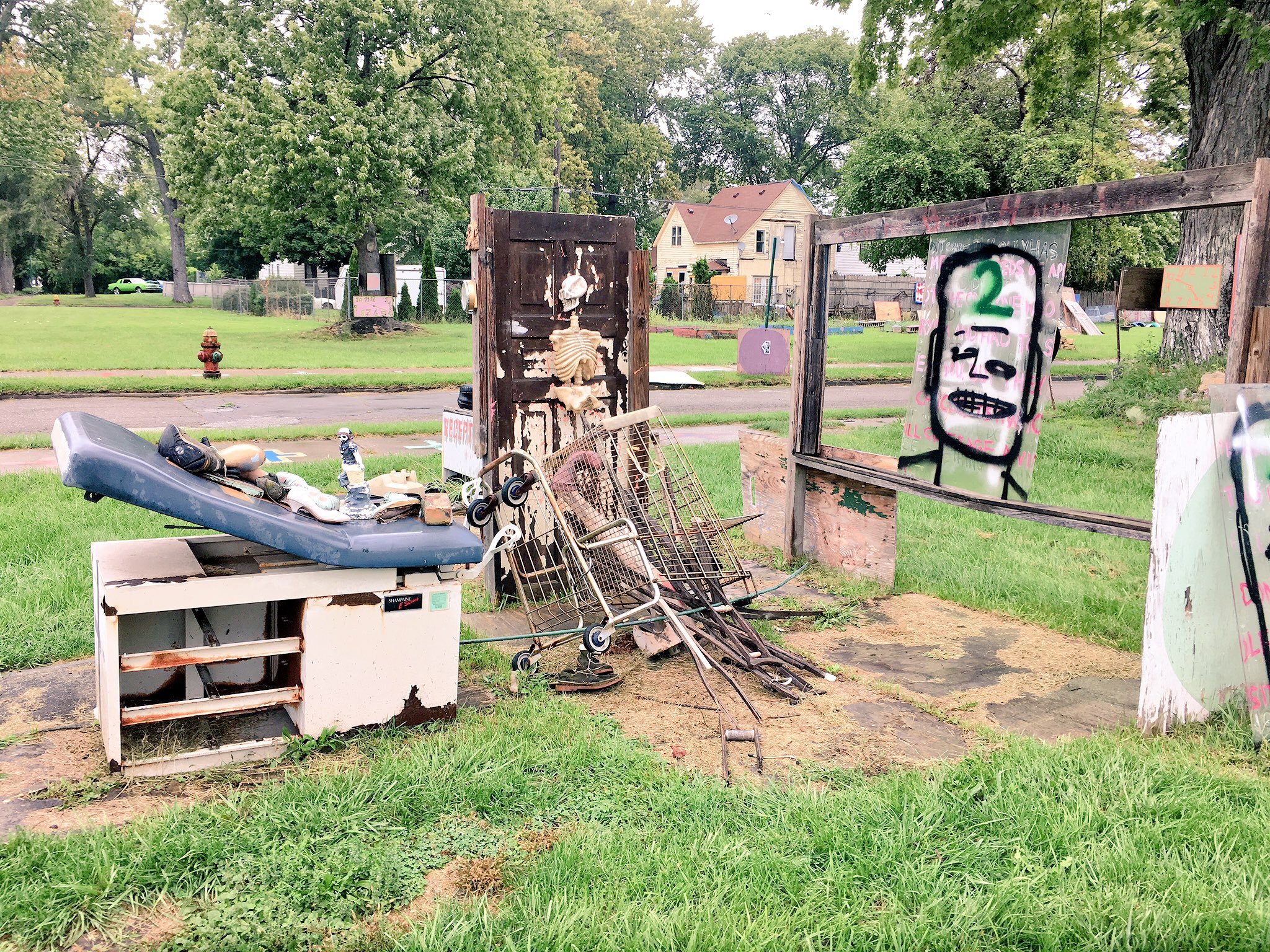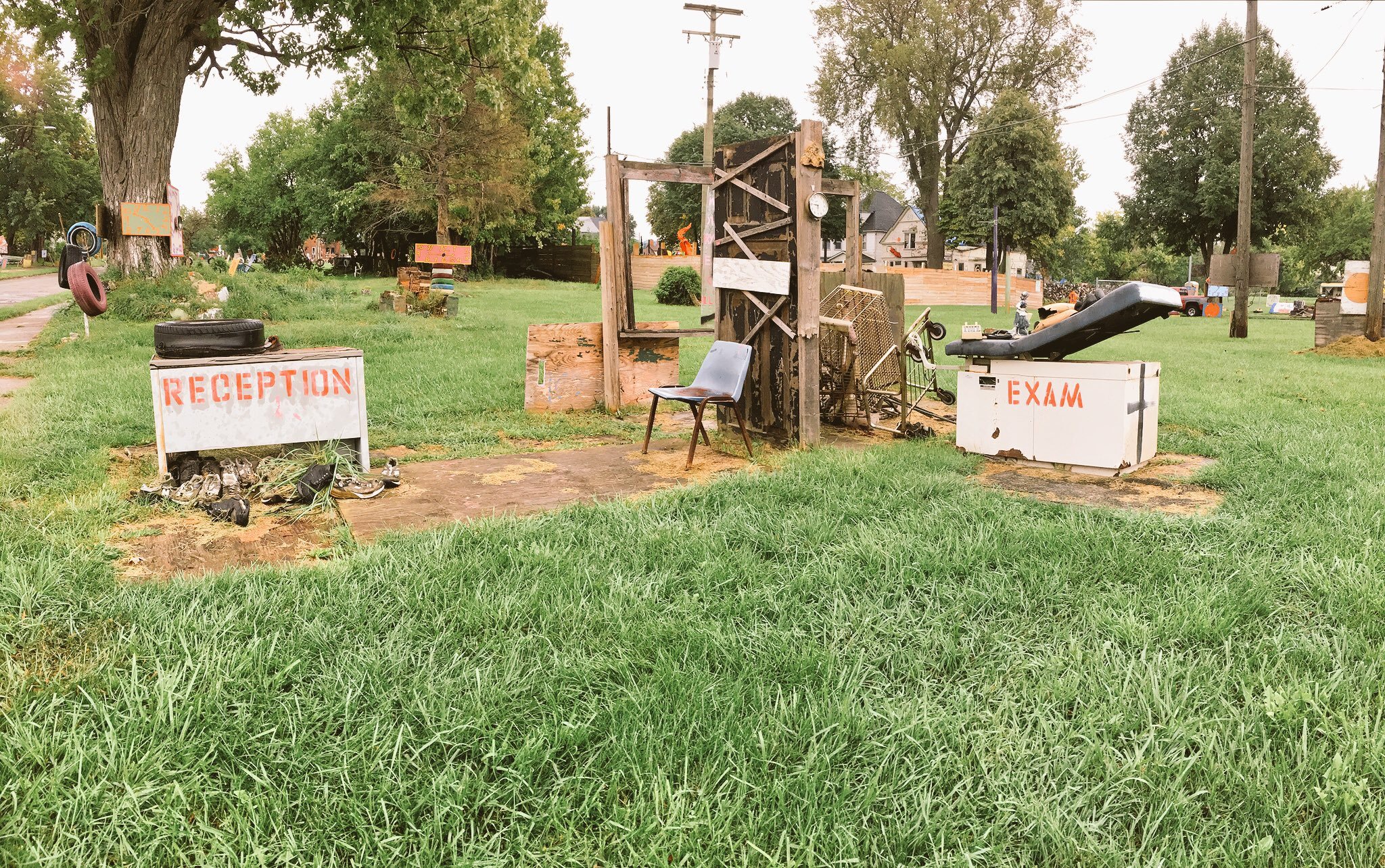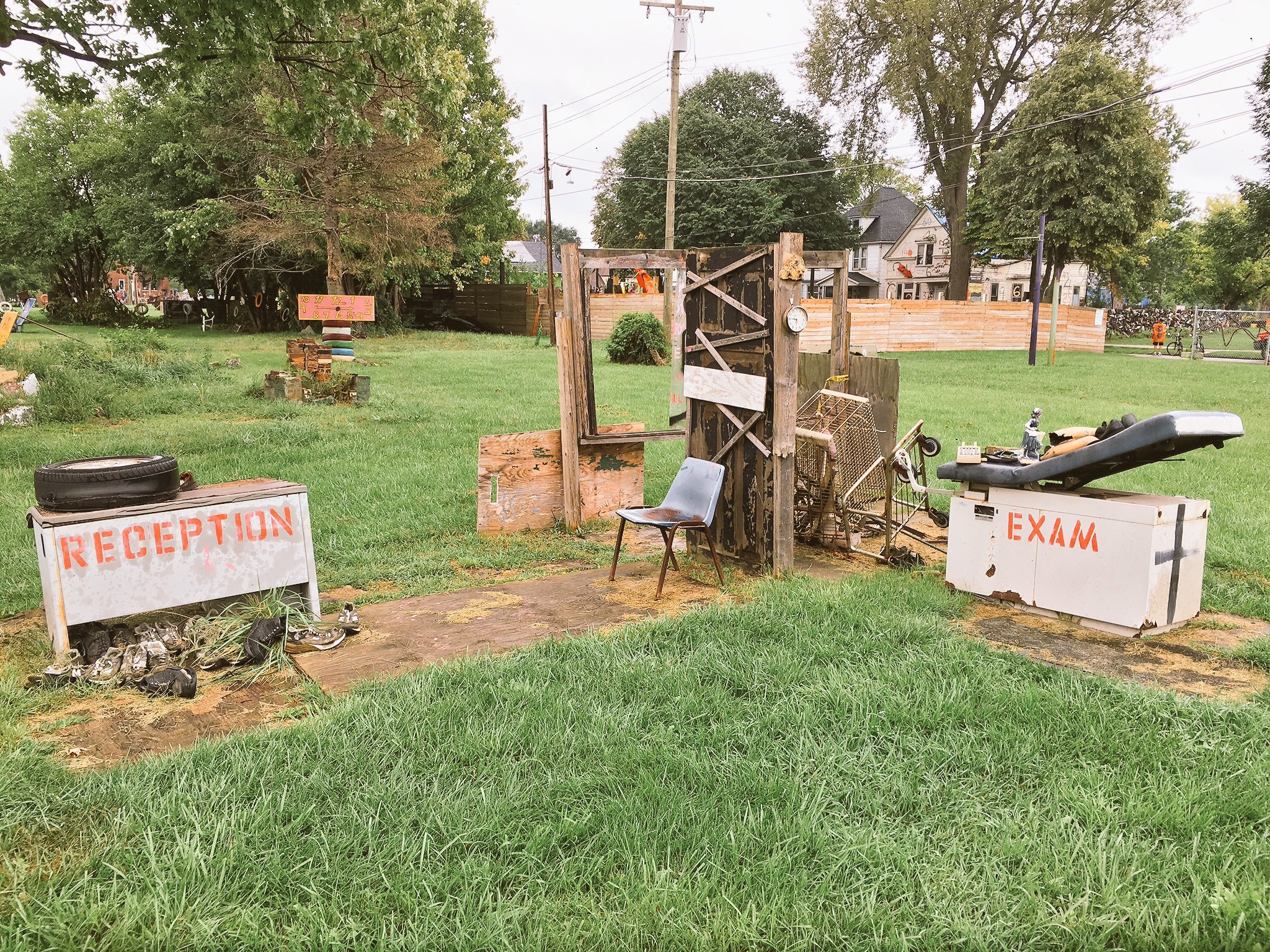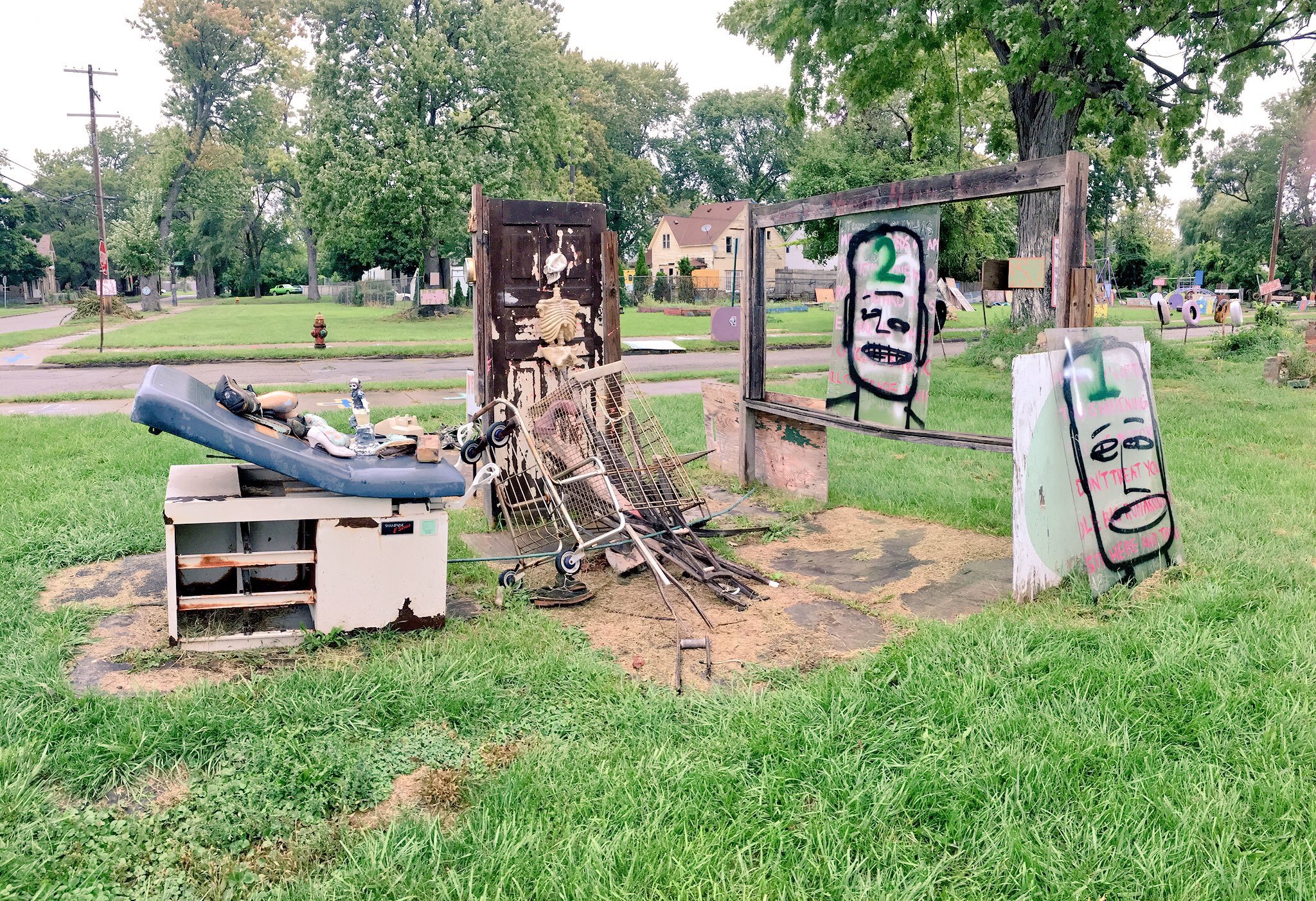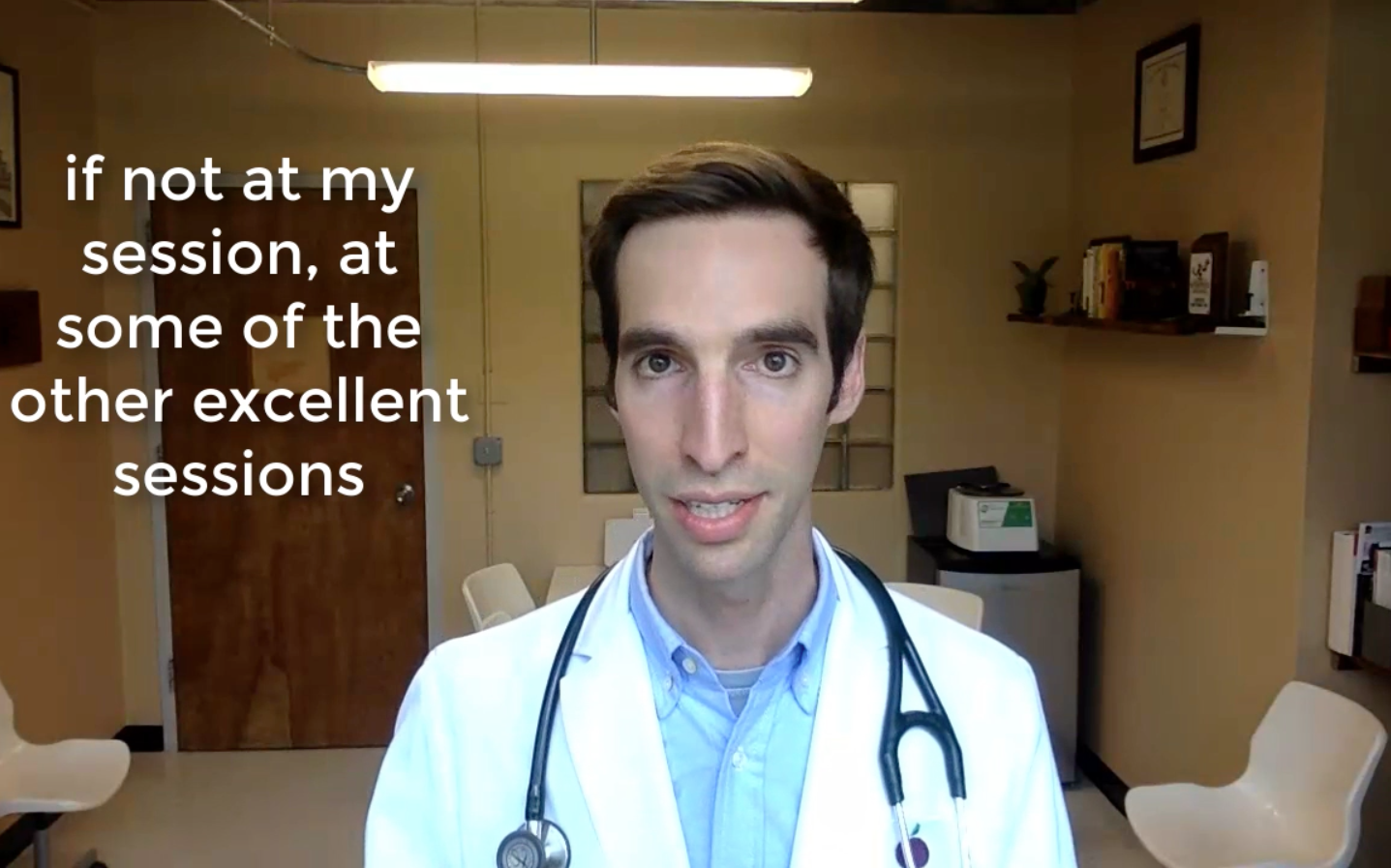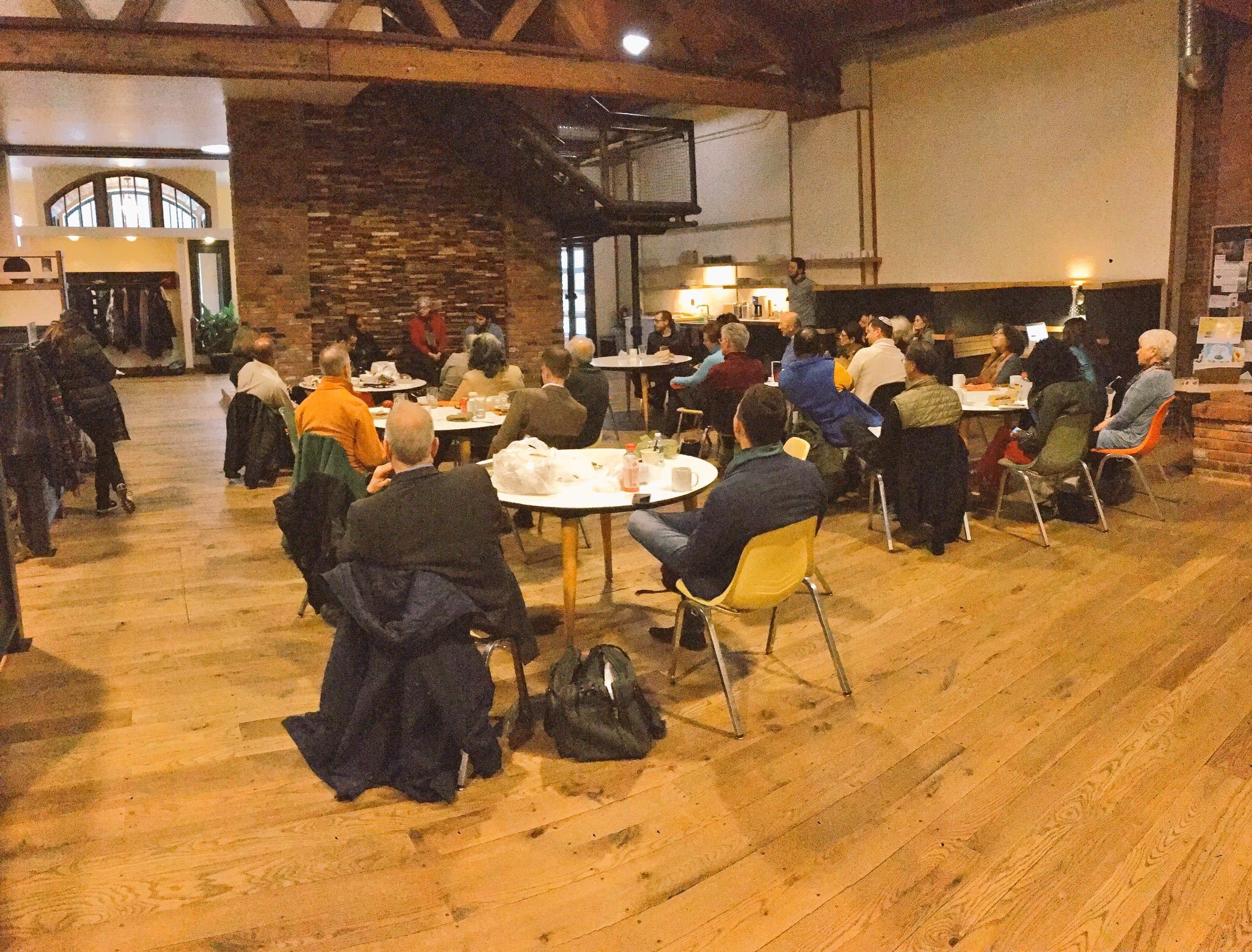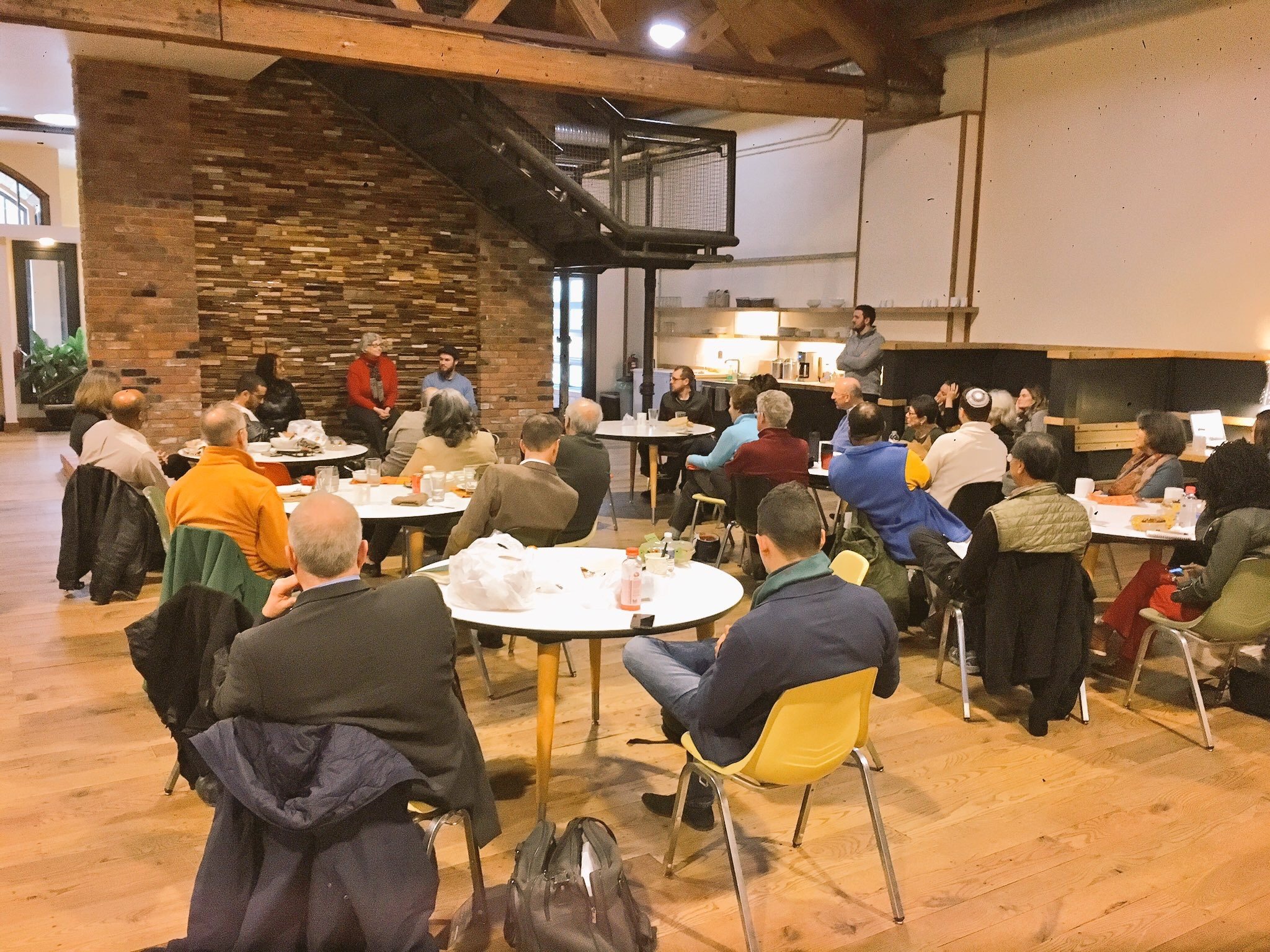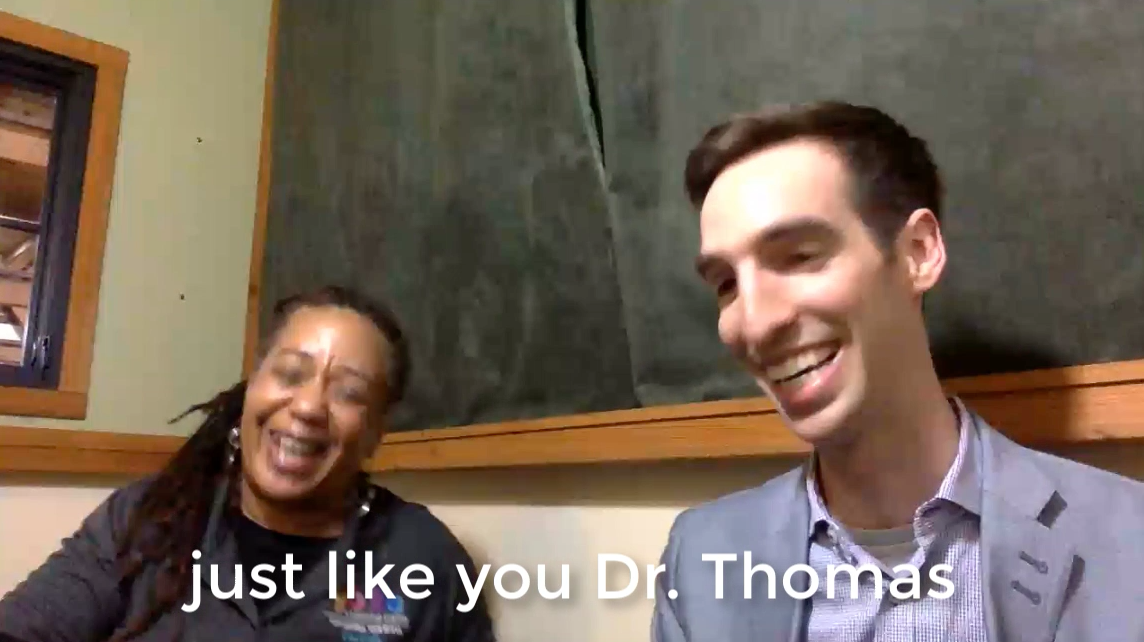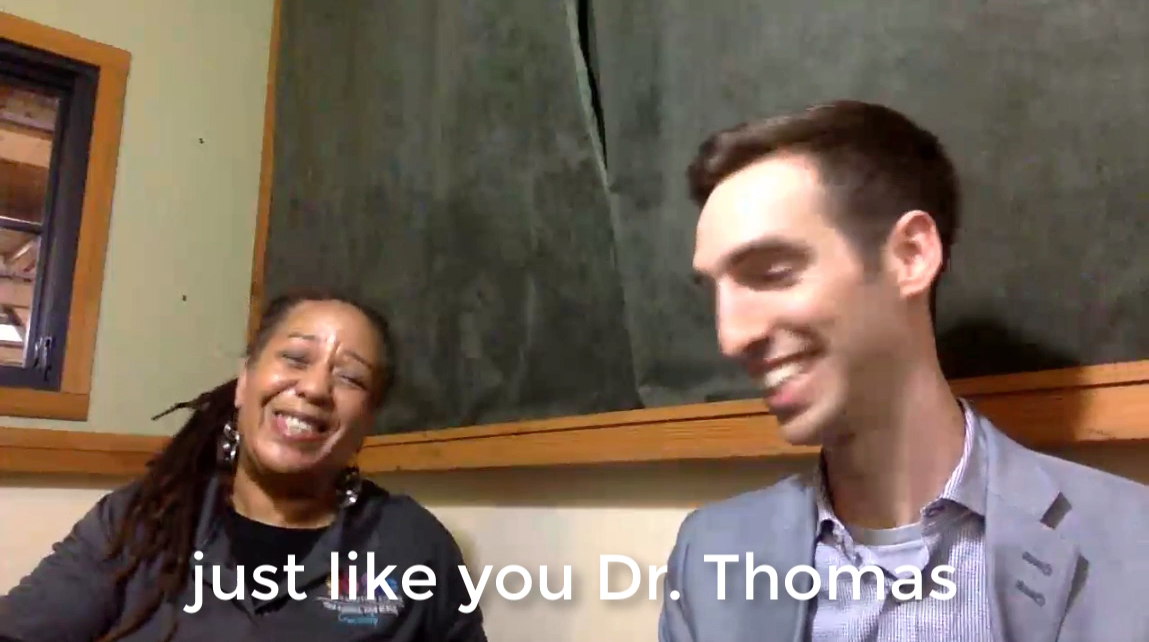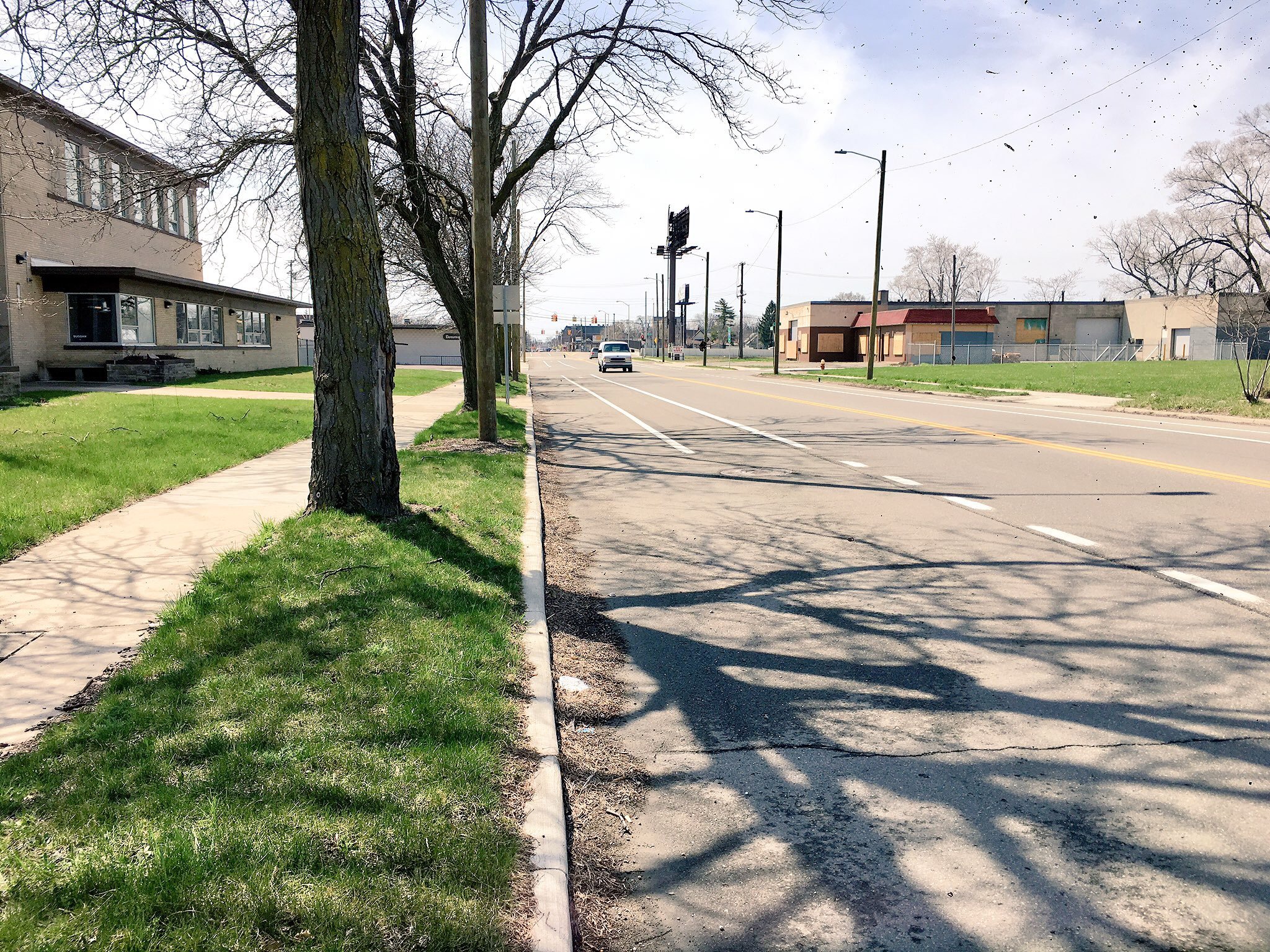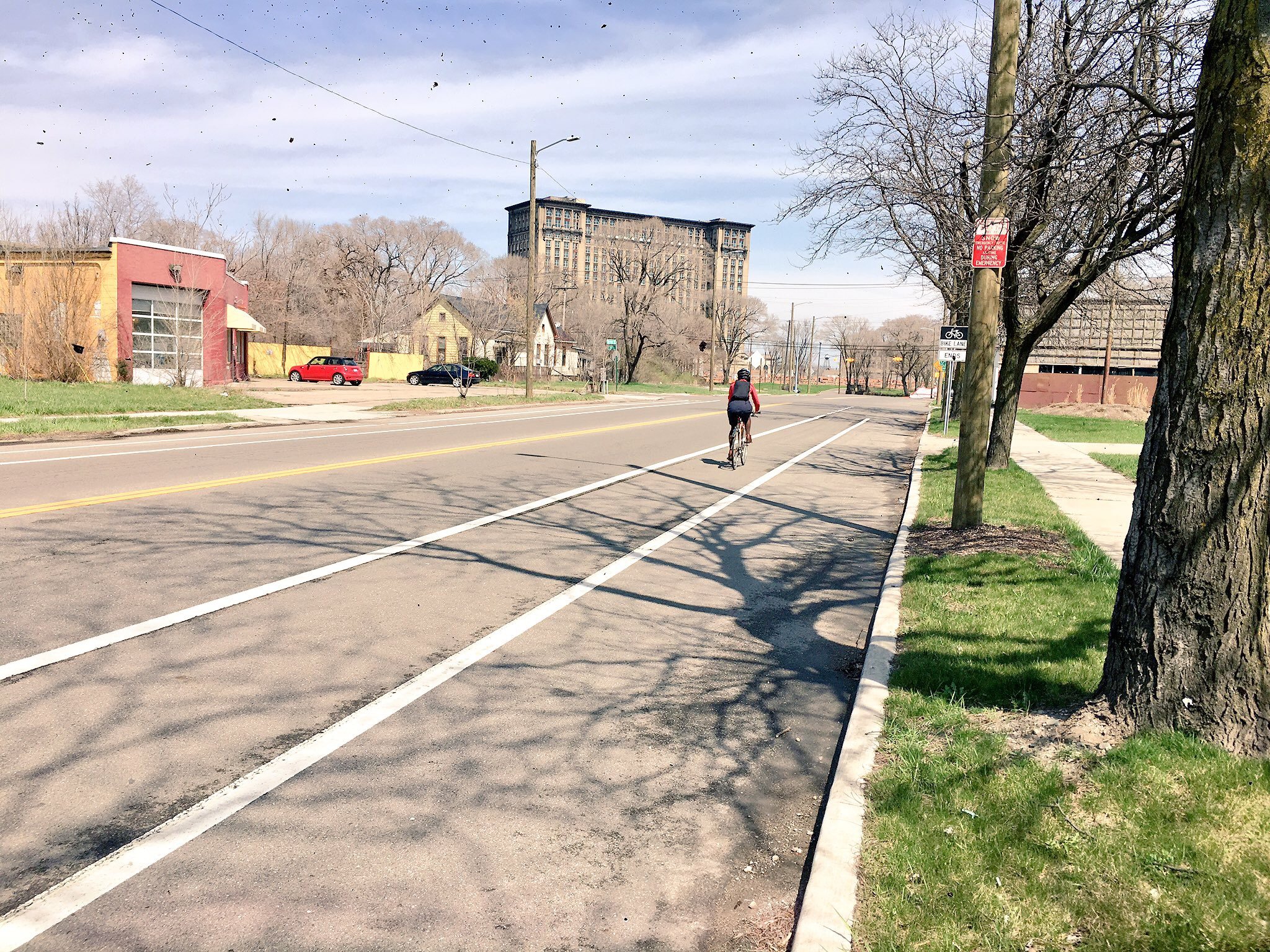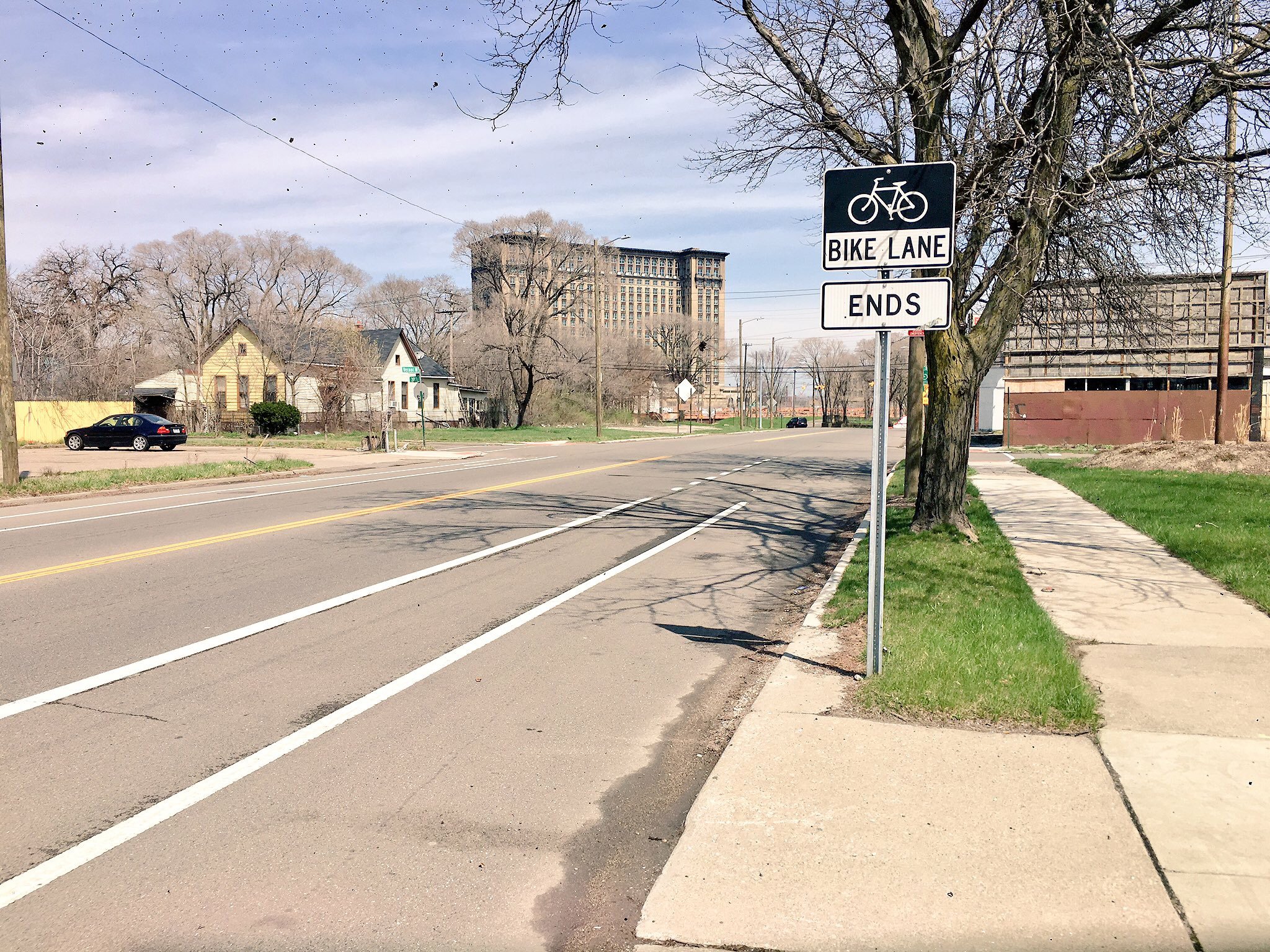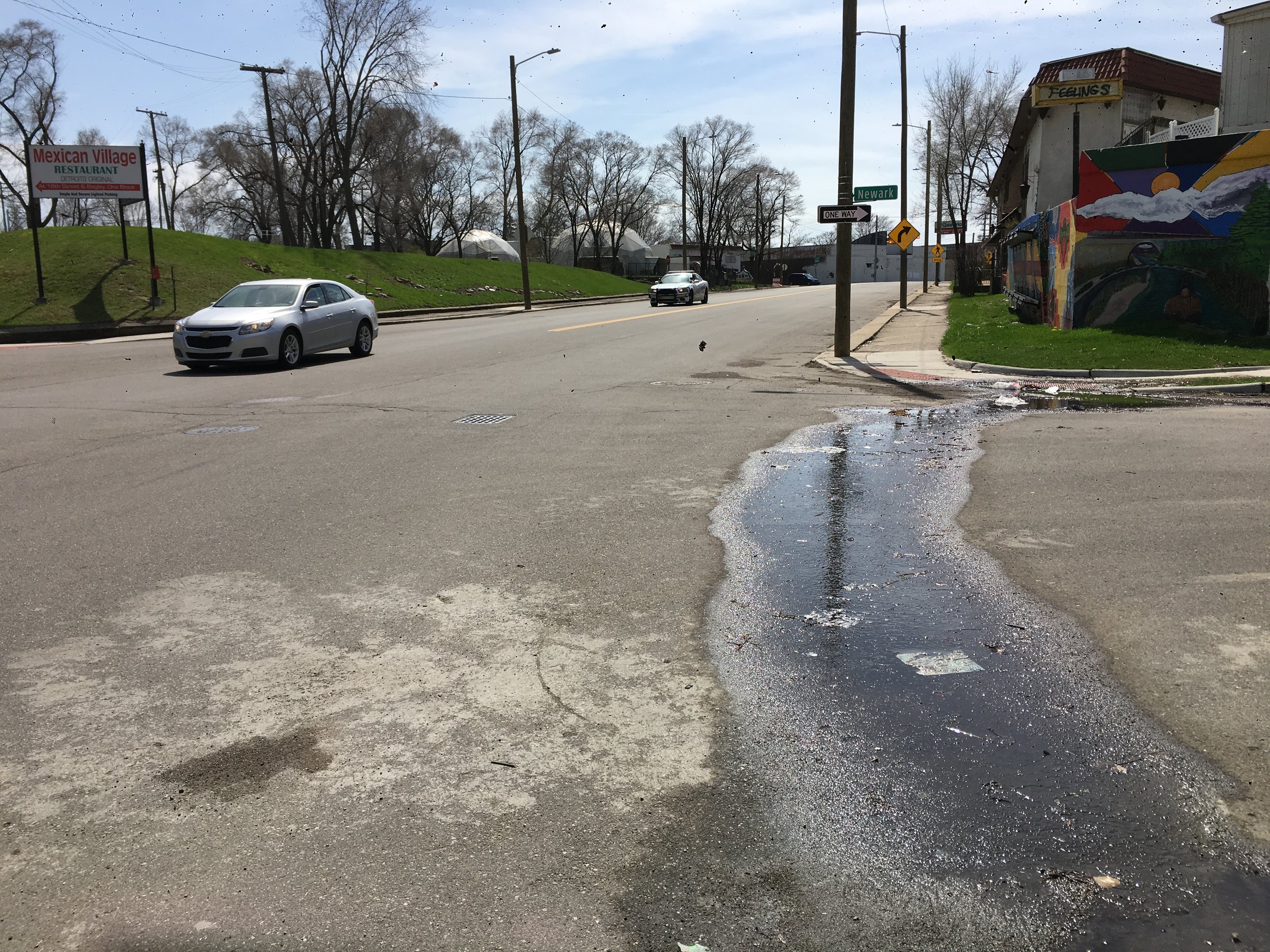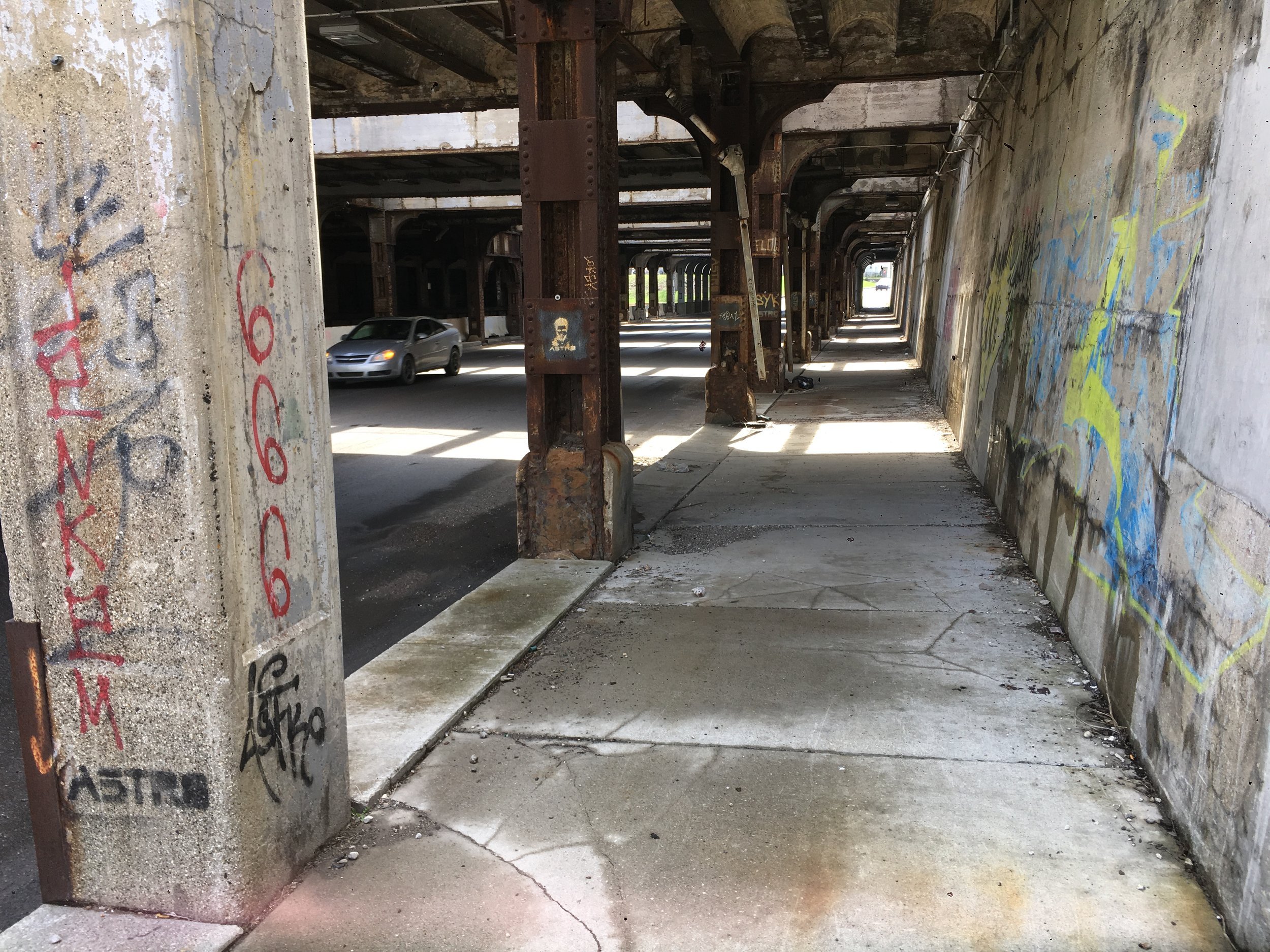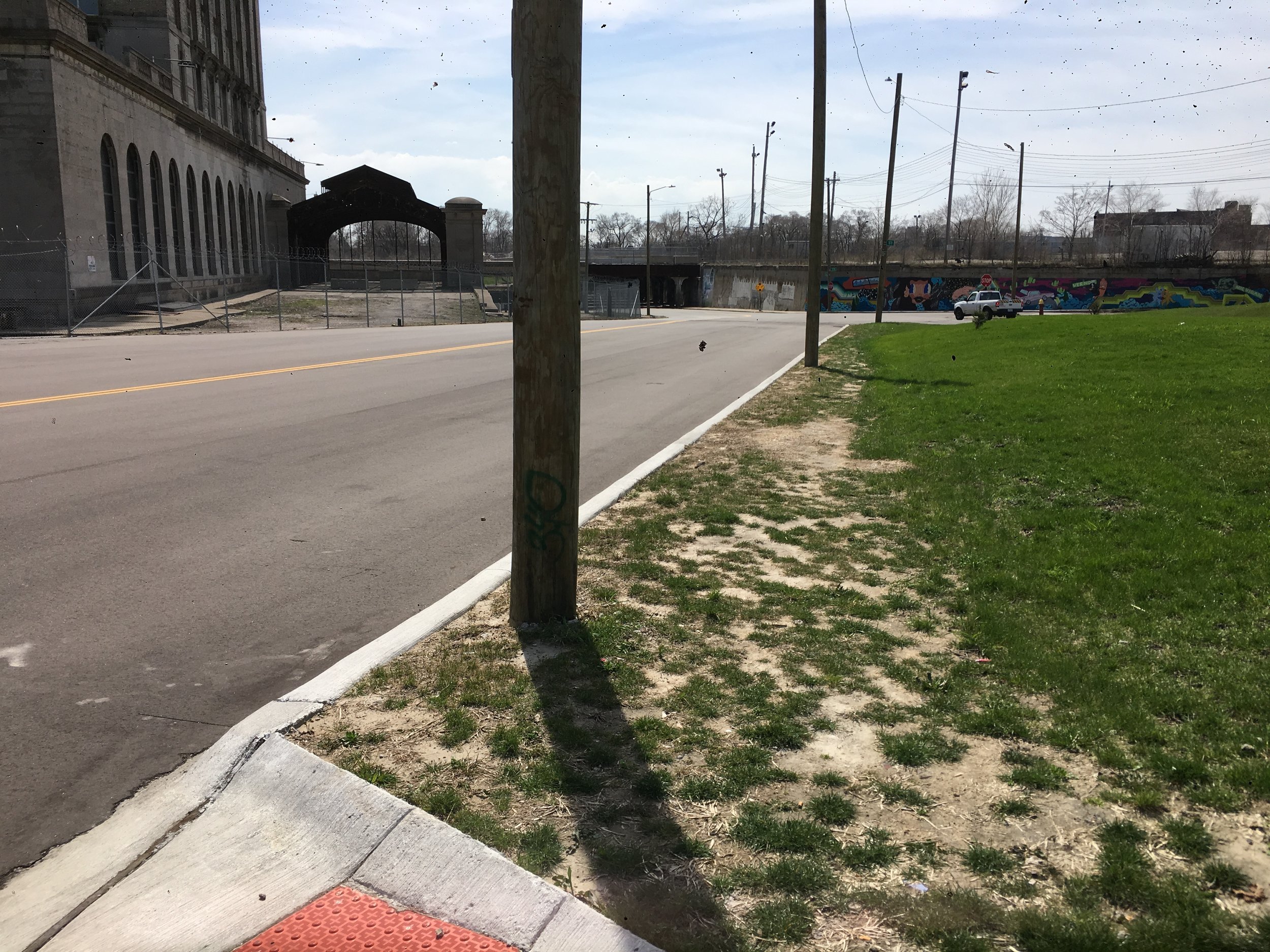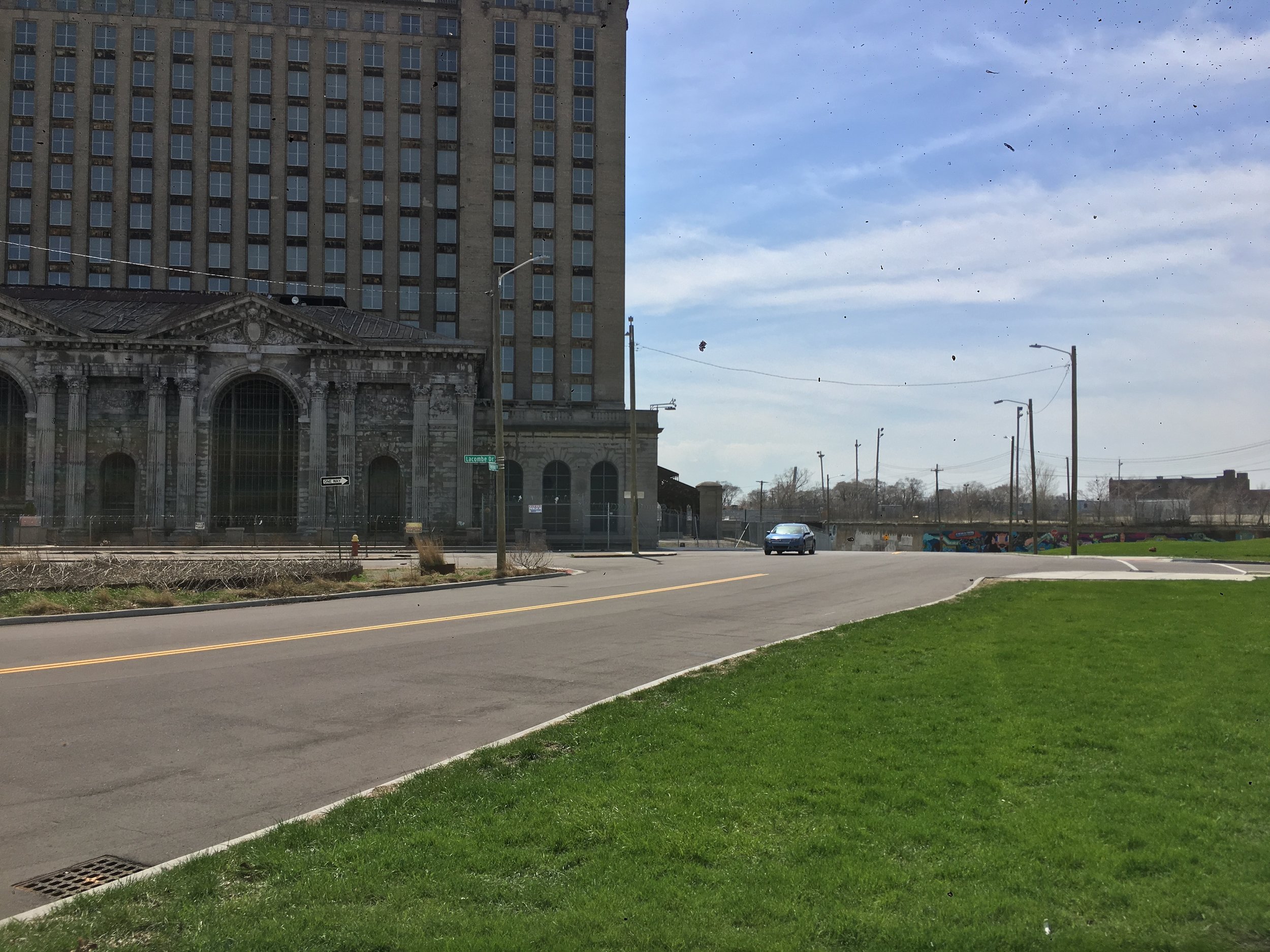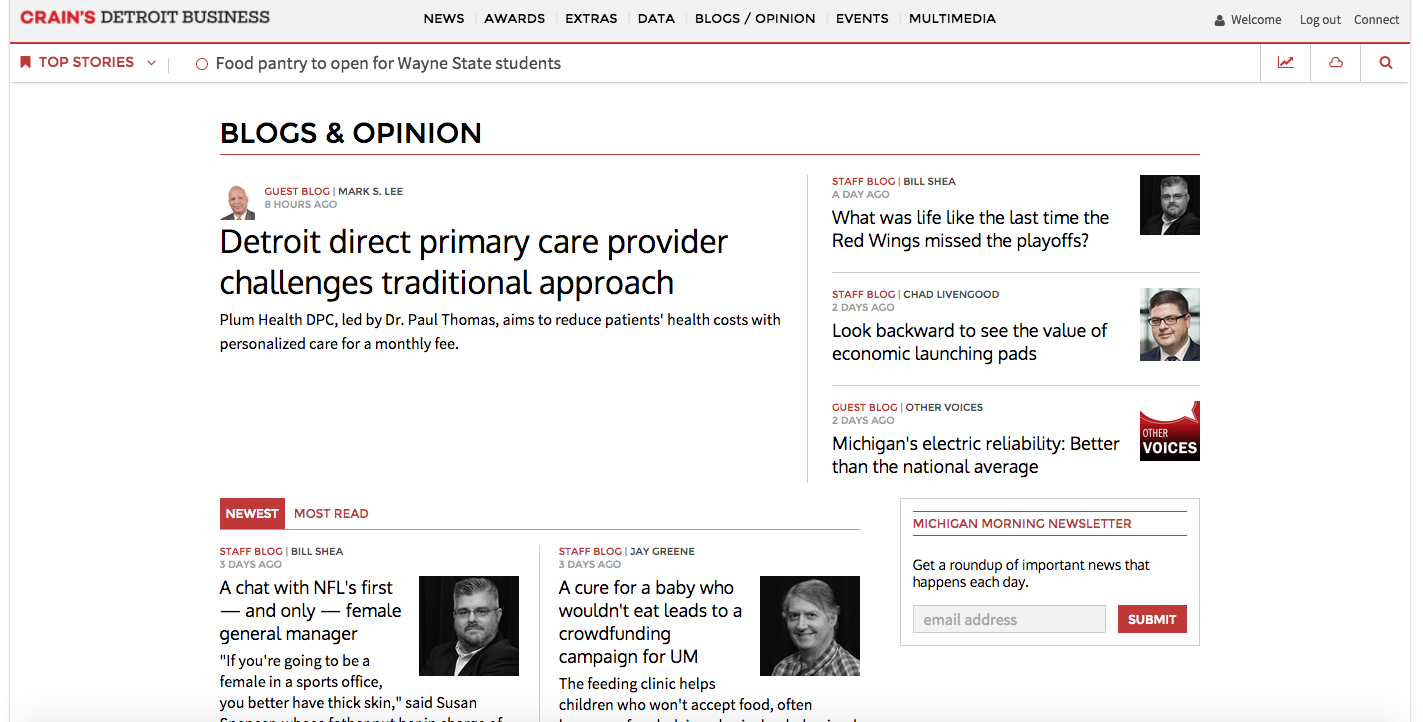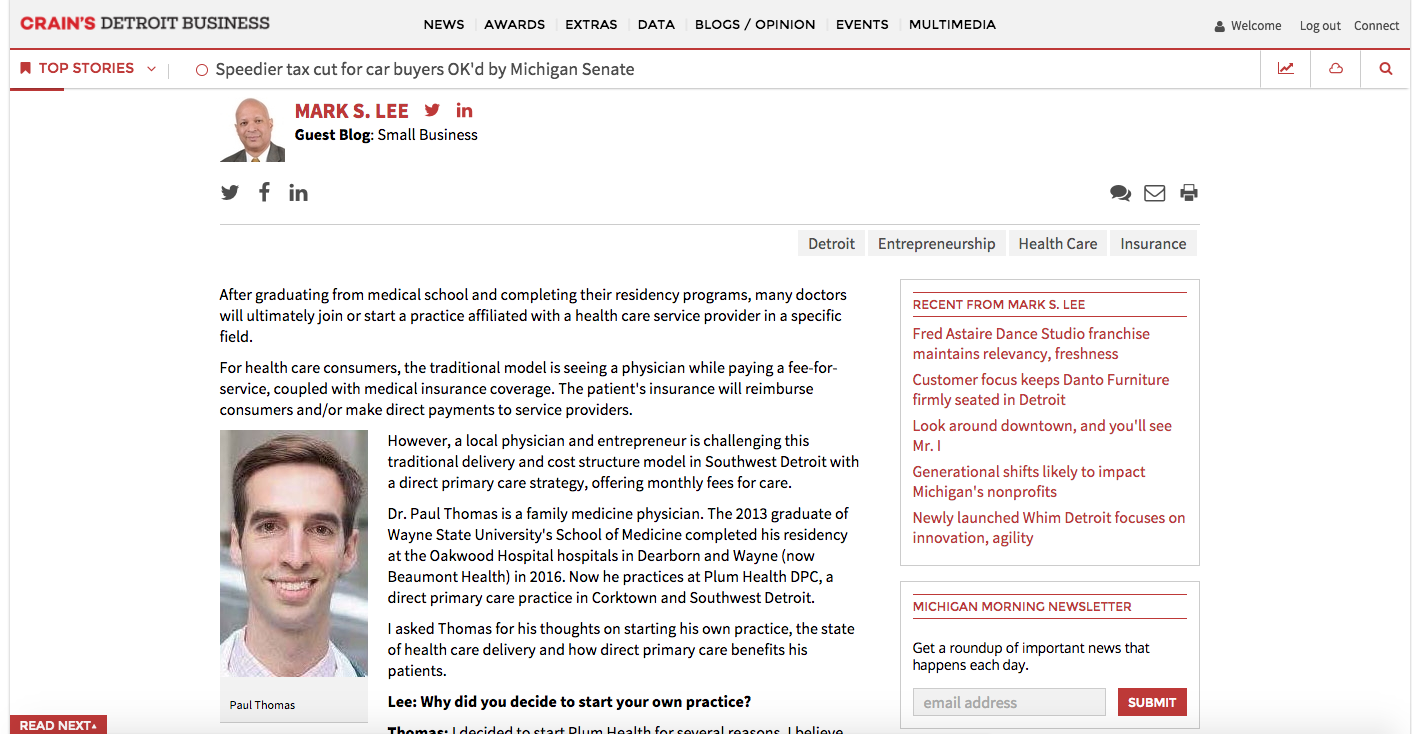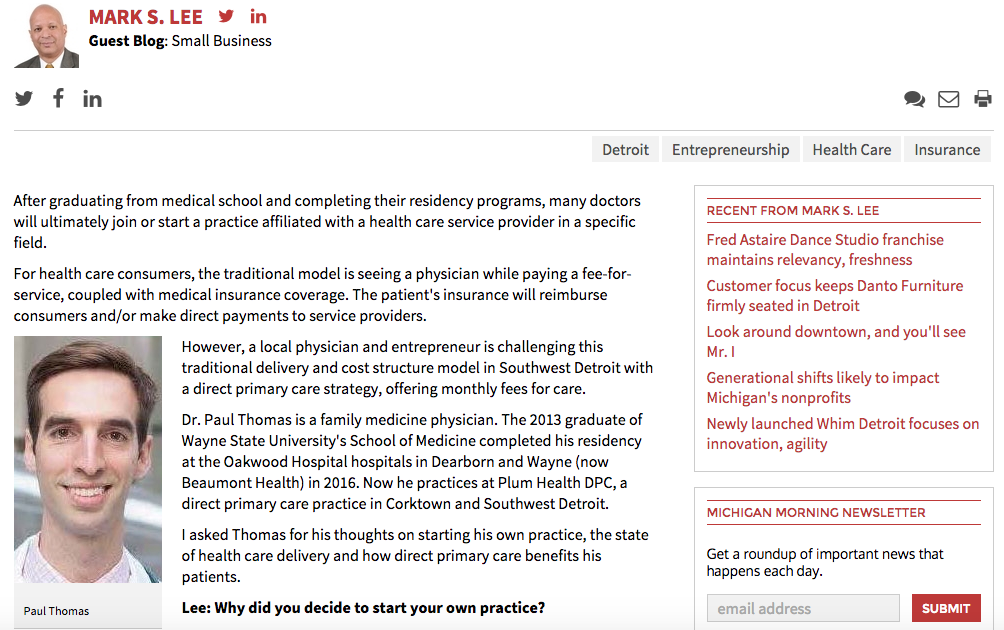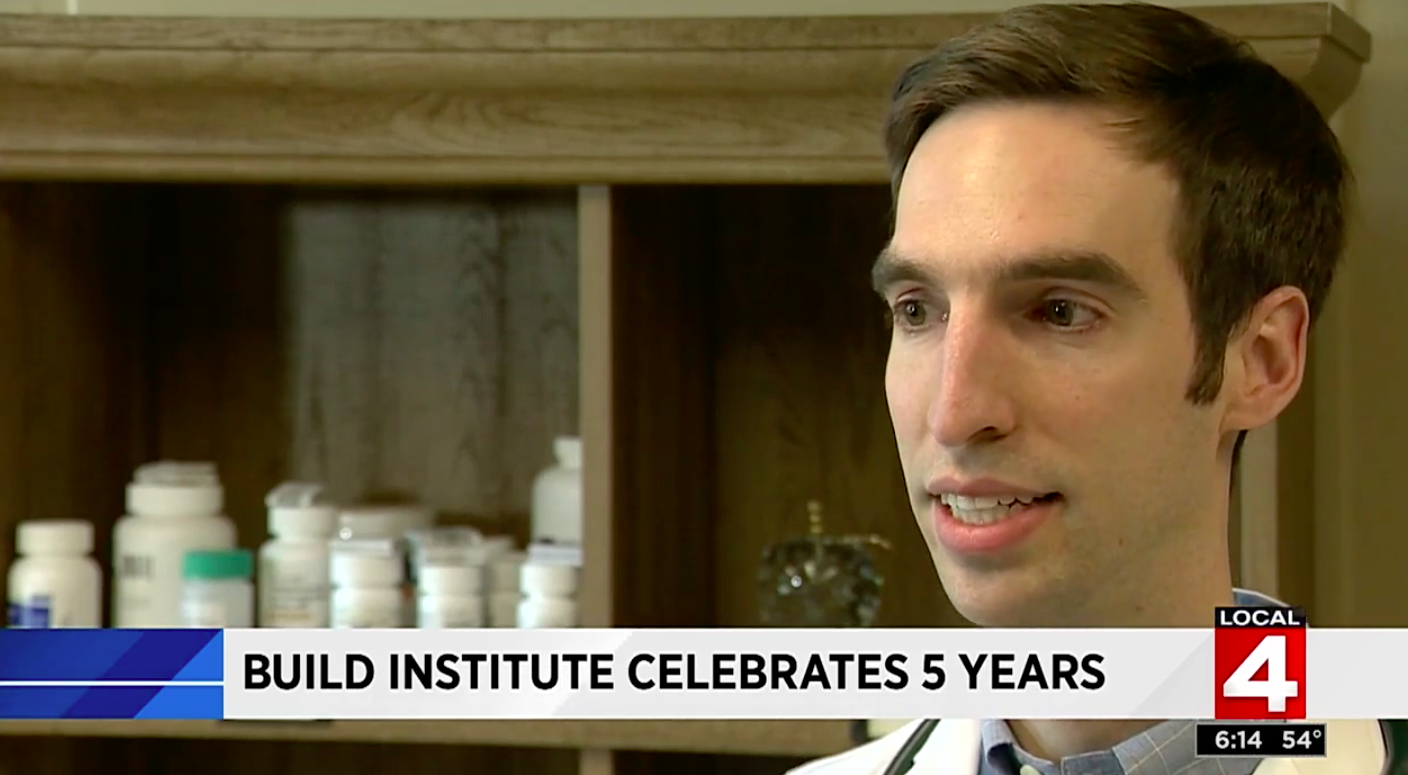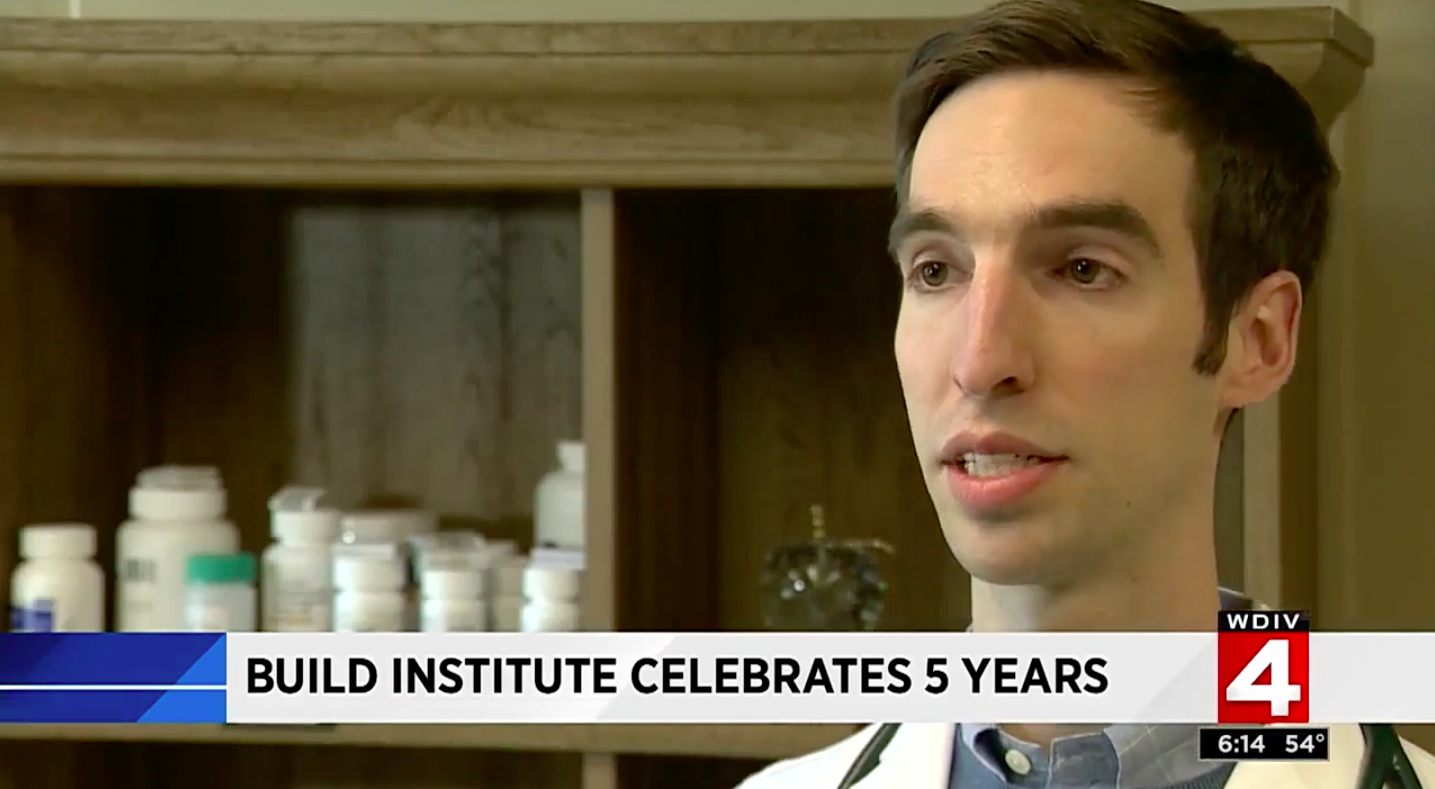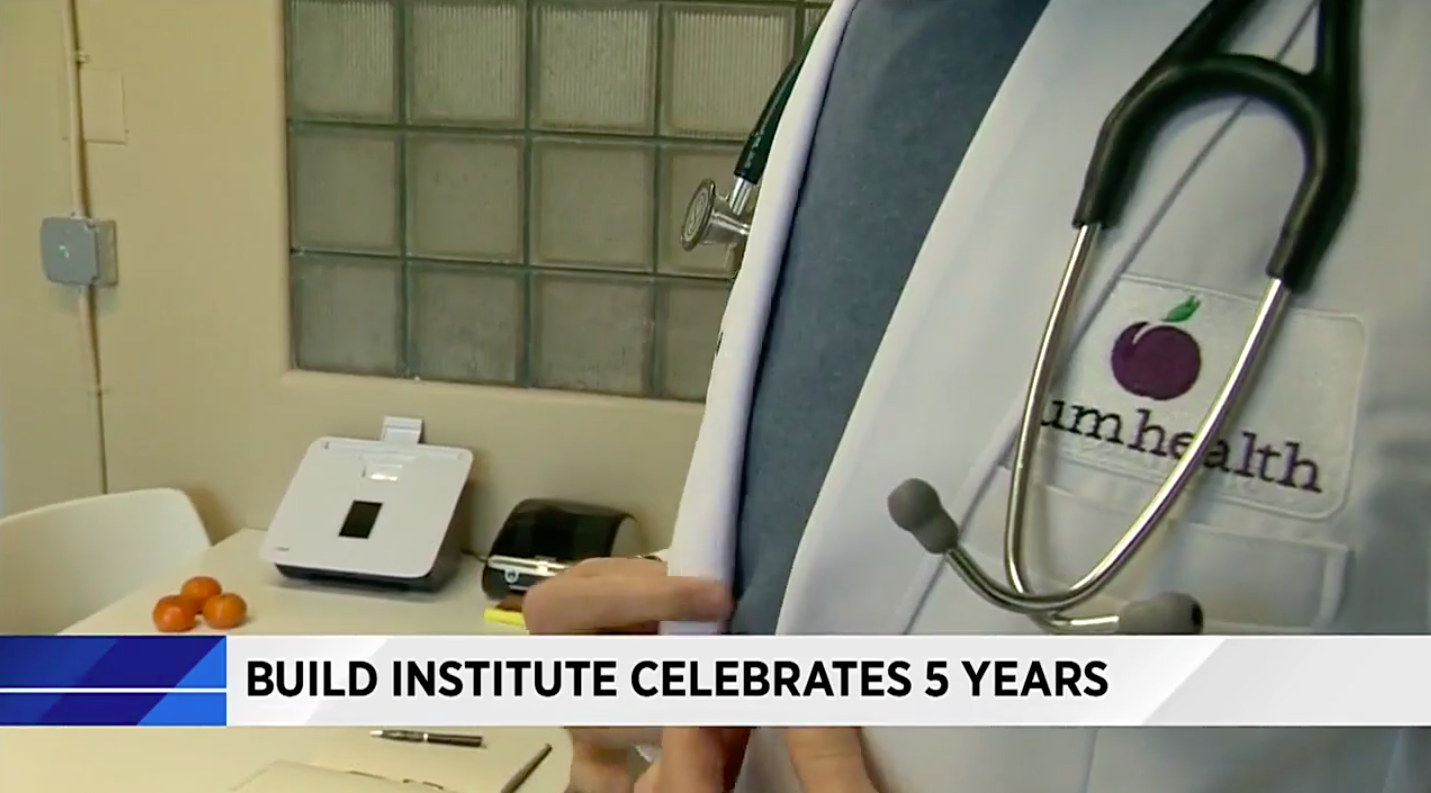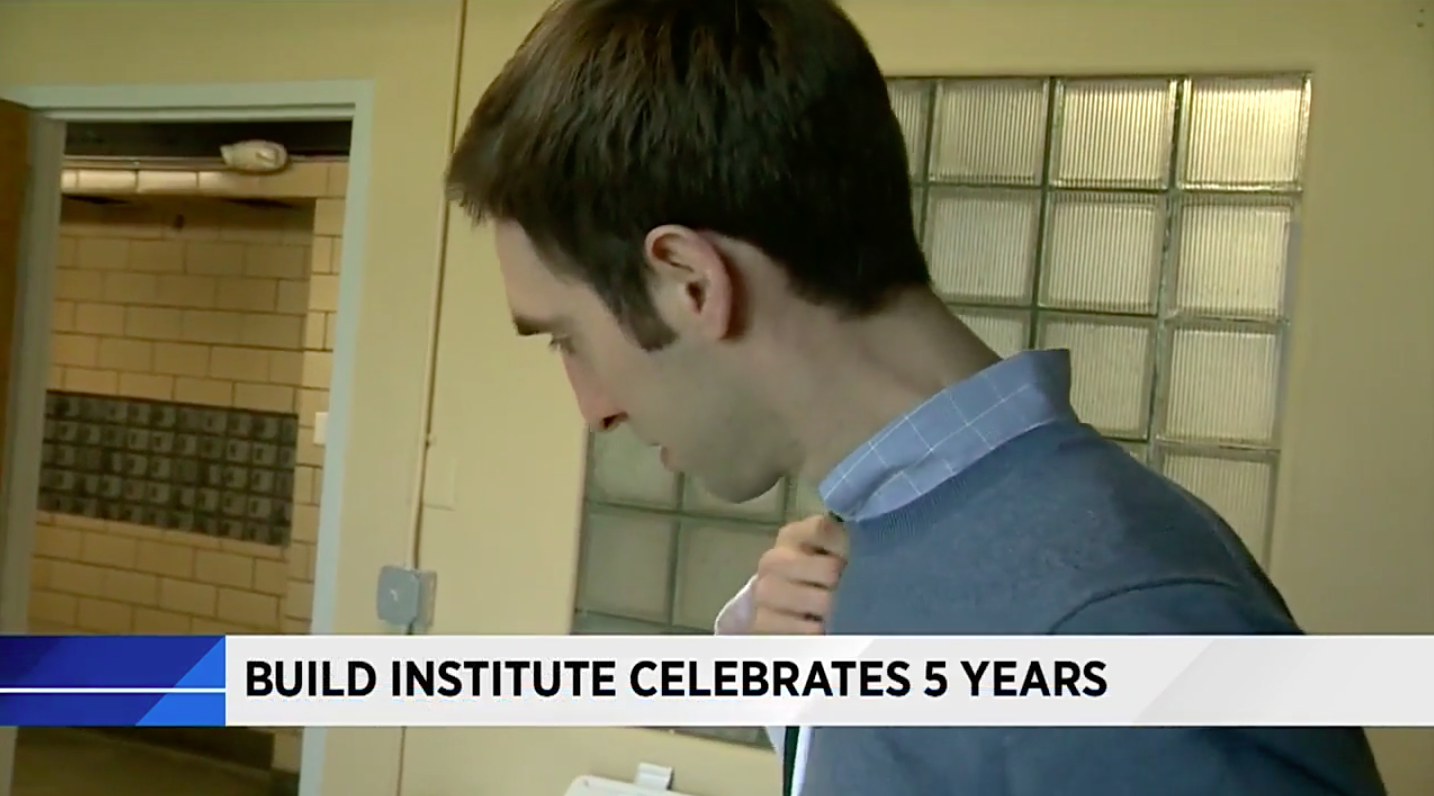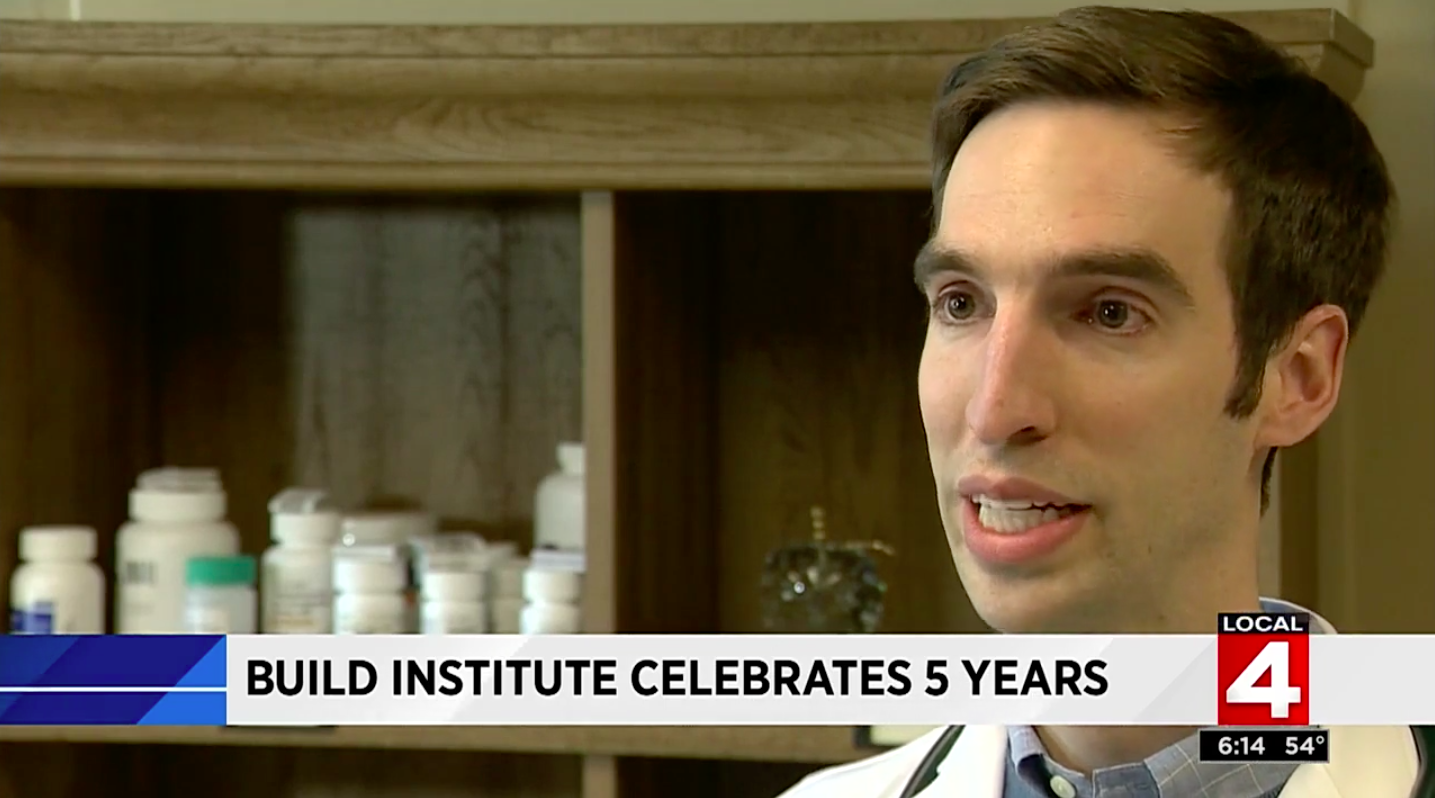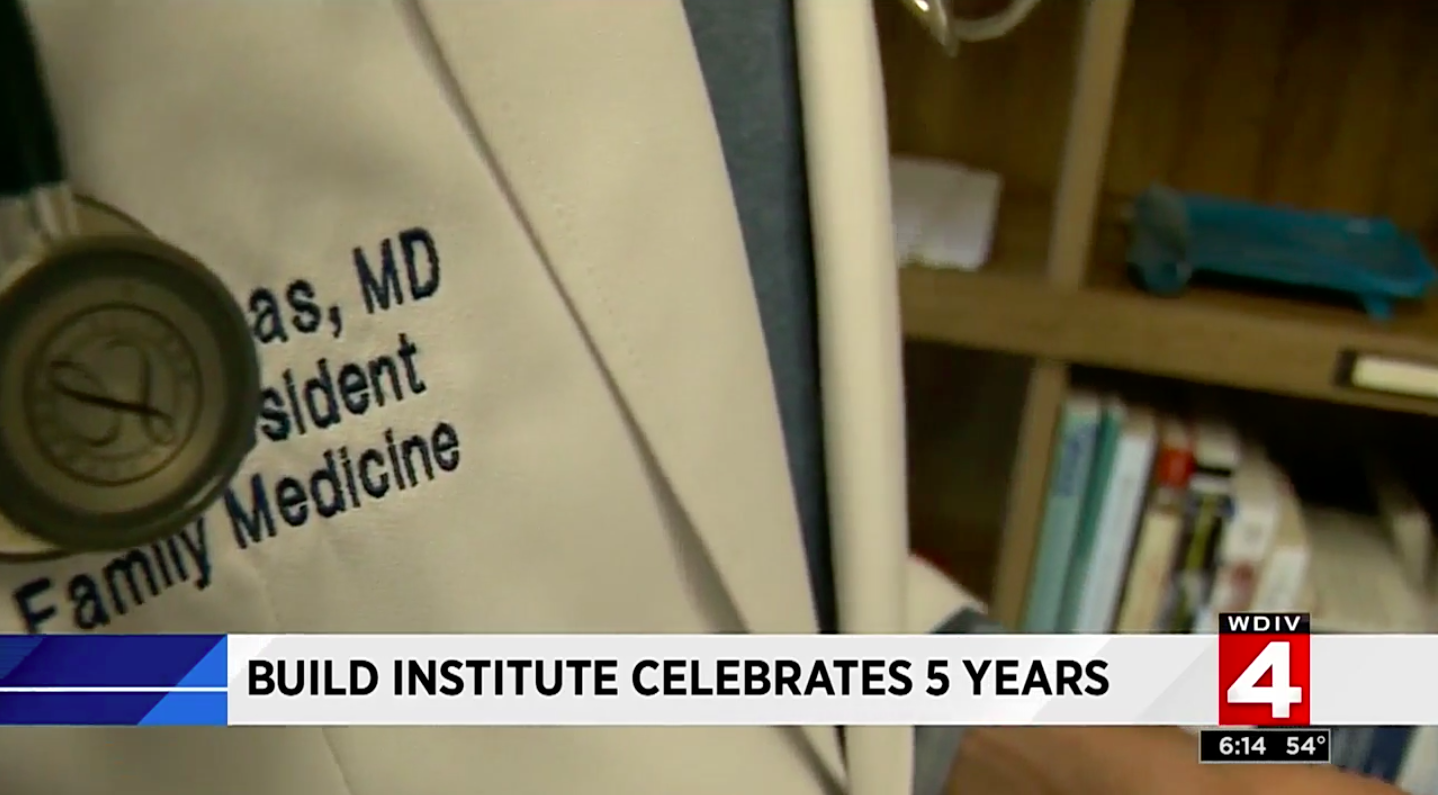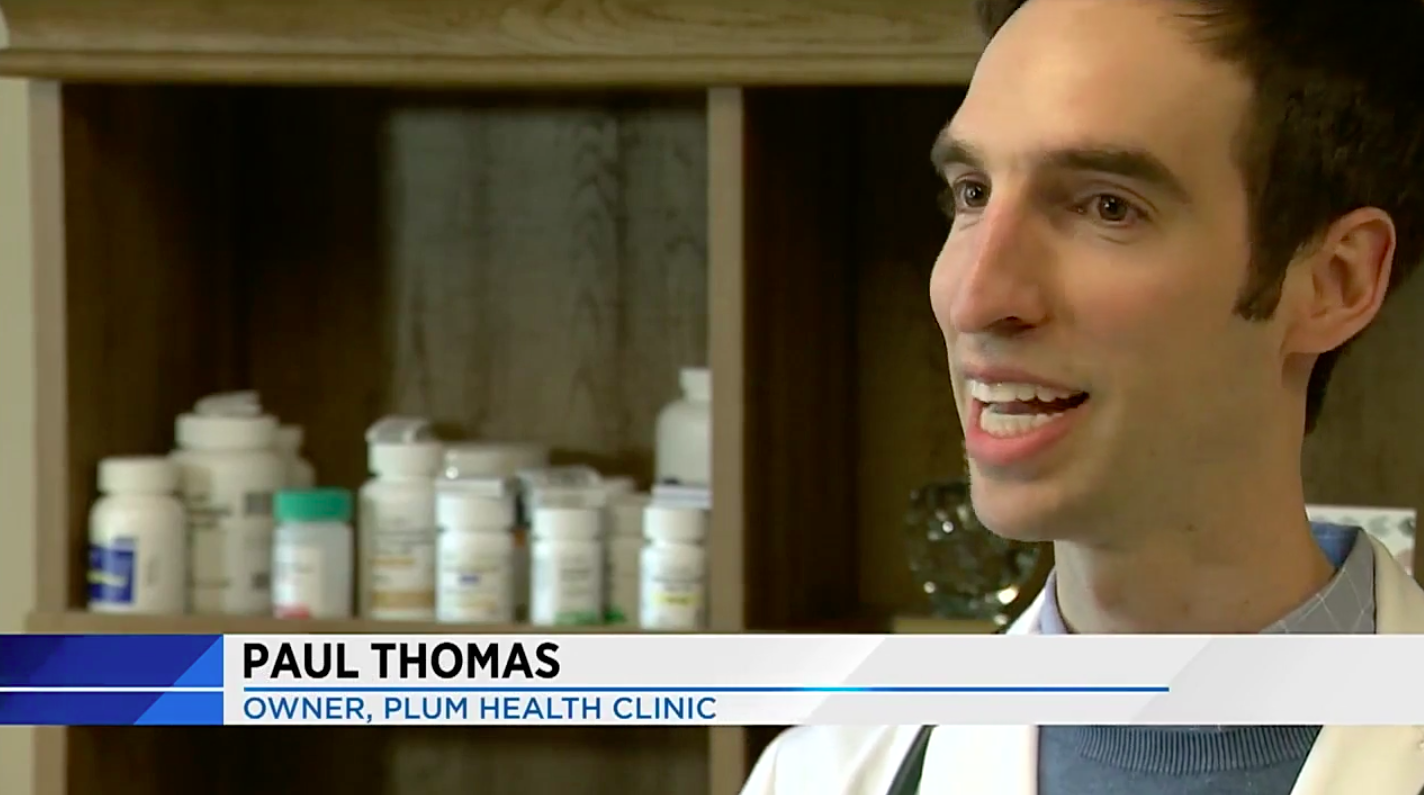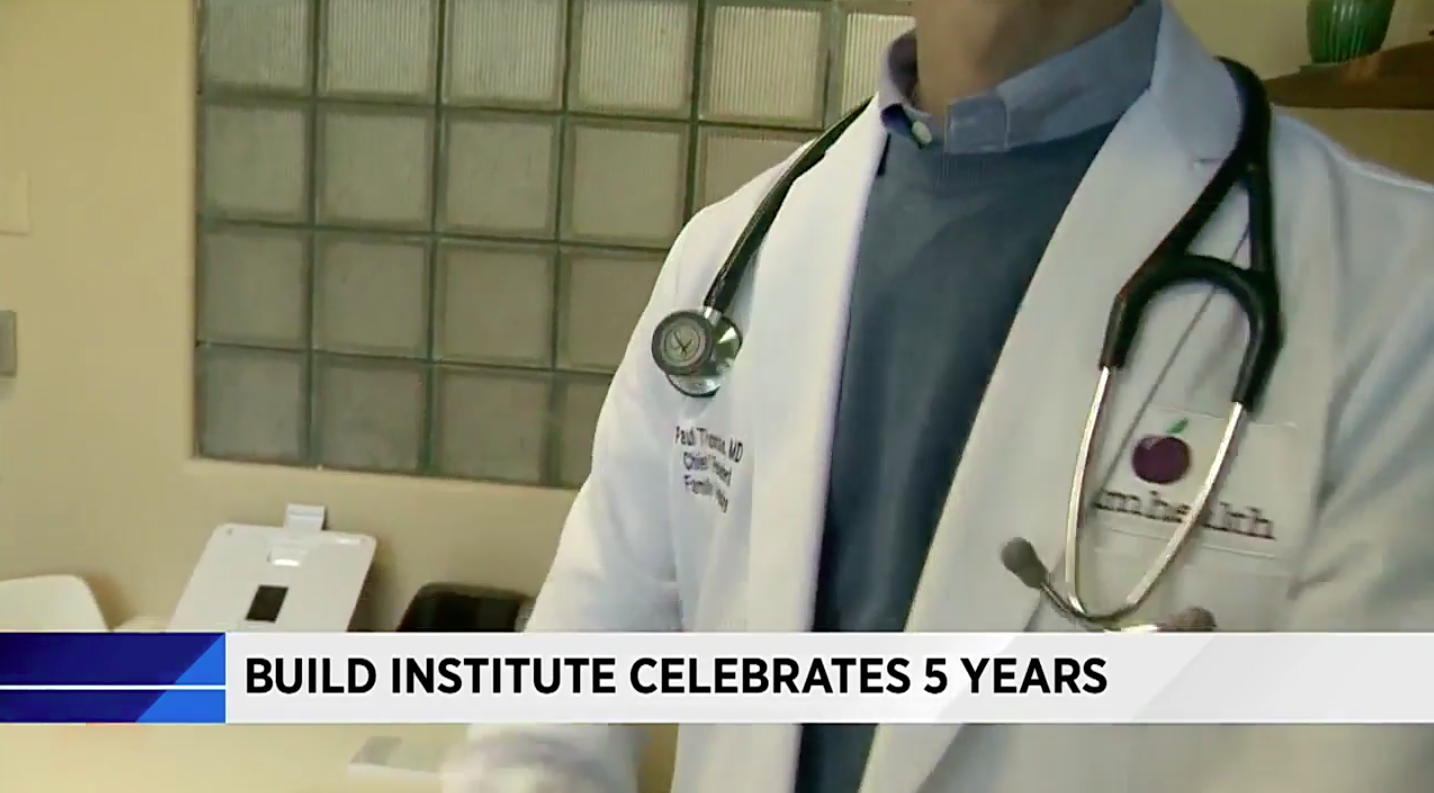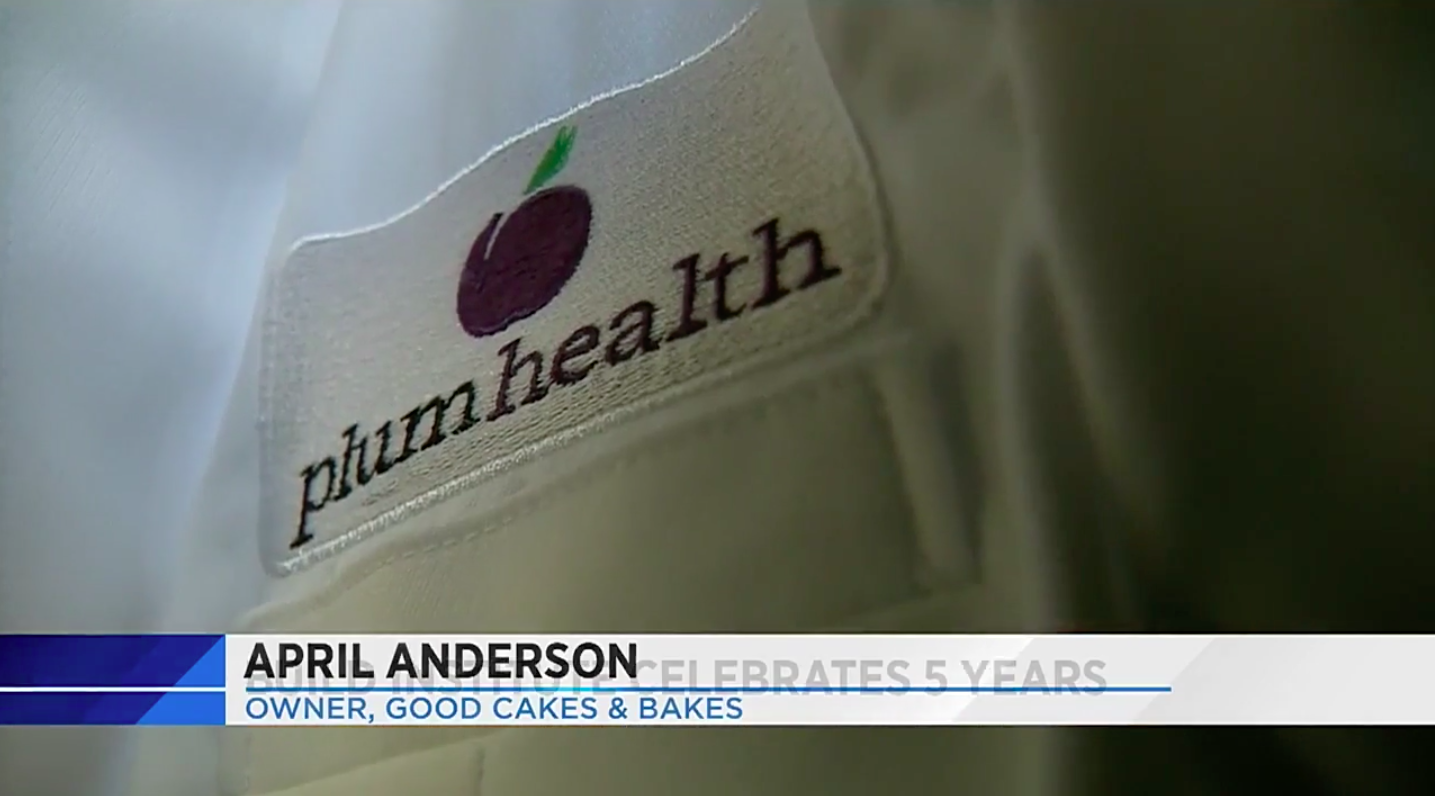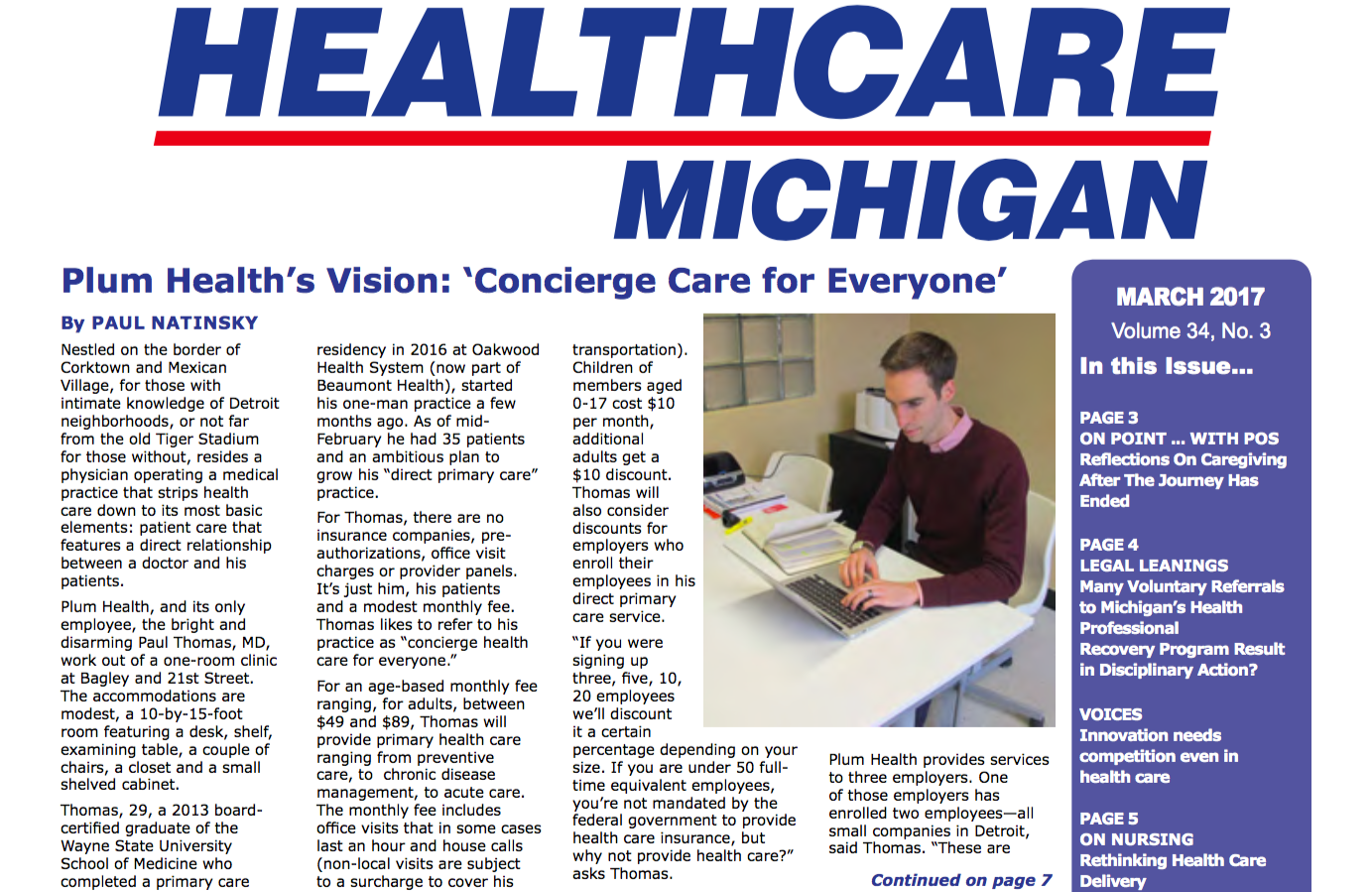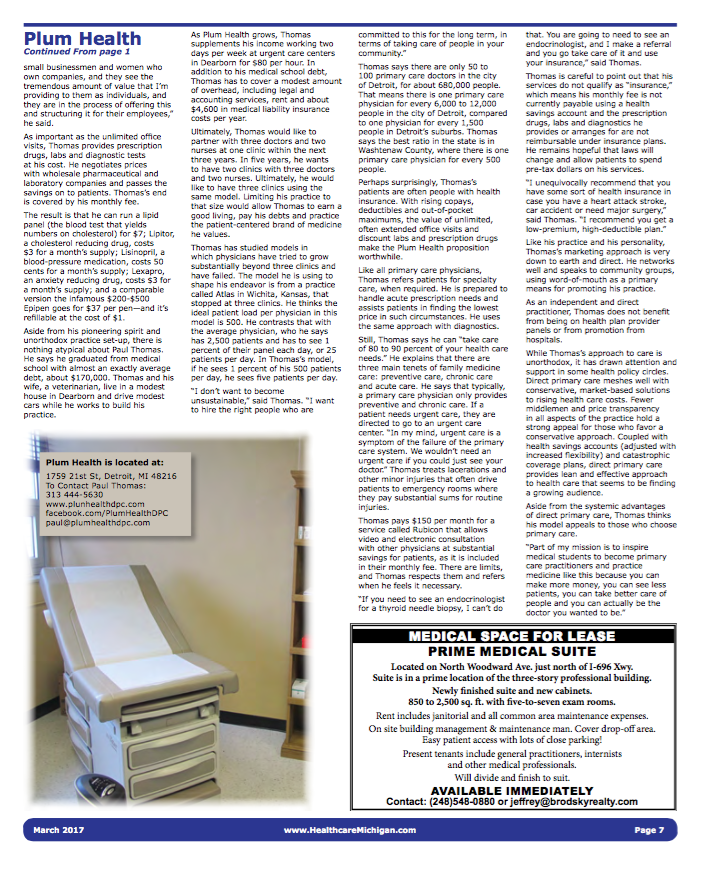Plum Health Blog
Primary Care Clinic in Detroit
When I was a first year medical student, I worked with a group of my fellow medical students to build an outdoor medical clinic. We wanted to raise awareness about the lack of primary care services in Detroit, and we accomplished this by constructing an outdoor medical clinic.
Currently, there are roughly 50 - 100 primary care doctors in the City of Detroit. This equates to about 1 primary care doctor for every 6,000 - 12,000 residents, which is horribly underserved. In the future, I would like to see 1 primary care doctor in every single Detroit Neighborhood, from East English Village to Ford/Wyoming, from Old Redford to Lafayette Park.
Having community primary care doctors creates a tremendous amount of value for the surrounding neighborhood - that doctor becomes a go-to person for folks who need health care and even emotional support.
However, the current reality in Detroit is that folks either don't have access to a primary care doctor or are driving to the suburbs for their care. To illustrate that lack of primary care services, our group of medical students built an outdoor clinic as a part of the Heidelberg Project on Detroit's East Side or what you may call the McDougall Hunt Neighborhood. Of course, we had the approval of Tyree Guyton, who checked in on our work that day, and we also received some press from the Detroit Free Press and the Wooster Collective out of NYC.
It was a simple clinic, with a reception desk, a door frame, a door, an exam table, and some chairs. On the door, we wrote all of the barriers to accessing health care services in Detroit and in the Nation. This was in 2009, when the debate over the Affordable Care Act was raging.
I visit the location periodically, to see how it has changed over the years. The last time I visited the site was in September 2016 during the Tour de Troit, an annual bicycling event that takes riders around the city. Someone had added a skeleton and some body parts, and it looks like Tyree made his signature drawings of faces on our plexiglass wall.
Plum Health may be in its infancy, but I know that we are already filling a need in the community in terms of primary care services. We recently surpassed 100 members and continue to grow, adding new members each week. We've taken care of newborns, toddlers, teens, and adults, and have addressed conditions ranging from sore throats to cancer.
As I continue to serve in the community, I hope to live up to the ideals that I put forth in this work of public art, to be the kind of community doctor that addresses the lack of access to health care in Detroit. I will also work to inspire the next generation of Family Physicians to take the leap into private practice in a community-based setting.
Thanks for reading, and have a wonderful day,
Dr. Paul Thomas with Plum Health DPC
Opinion Published in the Detroit News
Our opinion regarding Health Insurance and Health Care was published in the Detroit News last night, and it is currently on the front of the Opinion Page!
Our opinion made the top of the page for the Detroit News Opinion section on June 5th 2017.
Here's our opinion in full:
Health insurance does not equal health care. As Americans, we often conflate these two entities. But they are in fact separate.
Health care is when you see your doctor. They listen to your story, empathize, perform a physical exam, make a diagnosis, and discuss treatment options. They can also order tests and give you medications. The compassion, the sincerity, the relationship — that’s health care. Health insurance is what covers you in the case of a medical catastrophe, like if you’re involved in an accident, have a heart attack or a stroke. Health insurance is a financial tool to prevent you from going bankrupt in case these catastrophic events occur.
These may seem like obvious statements, but we’ve grown accustomed to a system in which health insurance covers everything, from flu shots to ICU. This may not be a terrible thing; we all need flu shots, and some of us may end up needing ICU care. The problem exists in how we pay for these services.
If we continue to ask insurance companies like Blue Cross Blue Shield and government entities like Medicaid and Medicare to pay for all of our health care services, from blood pressure medications to cardiac bypass surgery, costs will continue to be inflated.
So if you’re paying $10 for your lisinopril each month, know that it actually costs $0.37. If you’ve paid $120 to check your cholesterol this year, know that it actually costs about $6.55. If you’ve ever paid $150 for a chest X-ray, it actually costs about $40. When we use our insurance cards to pay for the basic, routine health care services, prices are inflated. Fortunately, we now have a choice, an opportunity to use free market principles to save money on our health care services. More Direct Primary Care clinics are popping up in Michigan and across the nation.
Direct Primary Care doctors ask that patients pay a monthly membership, which allows them unlimited visits with their doctor and the ability to call, text or email the doctor any time. These doctors also provide wholesale medications, at-cost labs, and at-cost imaging services. By cutting out the middle man and asking consumers to pay for their basic services, the cost of these basic services decrease. Typical savings for medications, labs and imaging services range from 50 percent to 90 percent.
Ideally, people will pair DPC services with a health insurance plan that fits their needs and their budget, and covers them in case of a catastrophic event.
Paul Thomas, M.D., is a family doctor at Plum Health Direct Primary Care.
A screenshot from our Opinion in the Detroit News on June 5th, 2017.
Thank you for reading and have a wonderful day,
Dr. Paul Thomas with Plum Health Direct Primary Care in Detroit, Michigan
Detroit Startup Week 2017
Detroit Startup Week 2017 will begin on Monday May 22nd!!! It's going to be a great week of stories, panels, and information sessions about starting businesses, large and small. It will also provide entrepreneurs with an opportunity to network and learn from eachother.
This year, I was selected to give a presentation about starting a business in one of Detroit's neighborhoods, Southwest Detroit. I'll be sharing some of my experiences and I hope you can come out to the session, the link is here.
From their press release: "Startup businesses of every type and stage are invited to over 100 completely free events that are designed to support startup growth and build a stronger business ecosystem in Detroit."
In the session, I will be talking about how we started Plum Health, some of the mistakes that we've made, some of the experiences that we've had, and some of the support systems in Detroit that has allowed us to be successful.
If you're contemplating starting a neighborhood professional service in the City of Detroit or elsewhere, I hope that my session will be extremely helpful for you.
Thanks so much for reading, and I look forward to seeing you at the Masonic Temple next week!
- Dr. Paul Thomas with Plum Health Direct Primary Care
WeWork Creator Awards Detroit Application
Today, we submitted our application for the WeWork Creator Awards! I really enjoy submitting applications for contests like this, because it helps me to clarify our mission, vision and values. And it's an opportunity to learn and grow through outside feedback about our internal operations.
In the application, they ask: "What problem is your idea, business, or organization solving?" For us at Plum Health, it's all about providing high-quality Family Medicine services in the community. It ain't sexy and it ain't super exciting, but it's so darn necessary! Having excelling primary care services in your neighborhood saves costs and improves health outcomes.
As they put it in this linked article, "One primary care doctor per 10,000 people in the U.S. can decrease hospital admissions by 5.5 percent, emergency room visits by 11 percent and surgeries by 7 percent."
This point is salient in Detroit, where there is an epic primary care shortage. Currently, there are only 50 - 100 primary care doctors in the City of Detroit for 680,000 people. That's 1 doctor for every 6,000 - 12,000 people. I recently wrote an article about this in the Detroit News.
Historically, this has been a difficult issue to solve because practice location for doctors is often tied to reimbursement from the community. Primary care doctors have avoided Detroit because more than half of Detroiters are on Medicaid, which generates low reimbursements.
With Plum Health, we do not rely on government or third party payers of reimbursement. Instead, we bill patients directly: $10/month for children and $49 for young adults, which covers all doctor's visits, texts, phone calls, and emails.
Additionally, members also have access to wholesale medications, at-cost lab work, and at-cost imaging services. From January - May 2017, we have saved our members roughly $15,000 on their meds, labs, and imaging. We are here to provide a tremendous amount of value to our patients and our community.
Our ask for the WeWork Creator Awards: help us reach our goal of providing value for the community by supporting what we do at Plum Health DPC!
The WeWork application continued with the following question: "How do you, your business, or your organization interact with the community?" Put simply - we are imbedded within the community and provide ours services to community members.
At Plum Health DPC, we take care of folks of all ages, races, ethnicities, and orientations. We are practicing on the street level, open and accessible to the community. Our youngest member is 14 months old, our oldest is 63 years; some of our members earn less than $30,000 and cannot otherwise afford health care. These folks are often shut out of the traditional insurance system because they cannot afford the premiums.
In addition to serving our paying customers in the community, I regularly volunteers at Cass Community Social Services' Clinic in Cass Corridor and the Student Run Free Clinic at I-94 and Conner. Here, I'm able to deliver free care to the most vulnerable members of the community - typically the homeless and uninsured.
Finally, Plum Health is regularly at health fairs throughout Detroit, performing free health screenings for non-profit organizations and church groups.
The last major questioned asked in the application was about how we would use the money if we won: "If you were awarded a grant, what new benchmarks would you be able to reach?" We are doing pretty well at Plum Health, adding new members each month and growing at a sustainable pace. However, if we won the Creator Award, we would be able to grow more quickly and therefore serve more people in Detroit and beyond.
Specifically, A grant of $18,000 - $36,000 would allow us to lease a larger office space and hire a second doctor. In a city with such limited primary care options, hiring a second doctor to work in the city would make a substantial difference in the lives of the people in our community.
We've taken care of folks who earn less than $30,000 and we've seen people who haven't been to a doctor in years, living in fear of generating large medical bills, and living with the consequences of their worsening high blood pressure and diabetes. Without the grant, the goal of leasing a larger office space and hiring a doctor would be at 6 - 12 months. With the grant, these goals would be achieved in 3 - 6 months.
Thanks so much for reading more about what we do at Plum Health DPC, and if you're a member of the WeWork community, thanks for taking the time to read our application and this blog post!
Sincerely,
- Dr. Paul with Plum Health DPC.
Travel Medicine in Detroit
It's that time of year where people start traveling! If you have travel plans for this summer or fall, let us help you at Plum Health DPC. We have helped several of our members get their vaccines at-cost, we deliver the vaccines in our office, and we save our traveling patients time and money.
We give our vaccines at-cost to save you money on your trip, from Hepatitis A, to Typhoid, to TdaP, and Malaria prophylaxis, we've got you covered for your upcoming travel. Here are our prices:
- Hepatitis A vaccine $68.40
- Typhoid Vaccine: $72
- Tetanus Diphtheria and acellular pertussis (TDaP): $47.47
- Malarone for malaria prophylaxis: $3.16/pill, or roughly $50 for an 8 day trip
There aren't many travel medicine options in the City of Detroit, and we are happy to be filling a gap in coverage and a gap in care for the folks that are taking trips outside of the country. You may not need all of the above listed vaccines, but we will work together to figure out which are necessary for your trip. The CDC.gov website has a great tool for learning which vaccines you need.
Thanks for your time, and happy travels,
- Dr. Paul Thomas with Plum Health DPC
Direct Primary Care in New Center
Today, Plum Health Direct Primary Care will be up in New Center at TechTown Detroit. This will be a part of "The Shop" at TechTown, where local entrepreneurs are featured on a rotating basis.
This month's theme is health-related businesses, so we are excited to participate! If you don't know about Plum Health DPC, we deliver affordable accessible healthcare services in Detroit and beyond. This is a great time to learn more about the service and have your questions answered.
If you don't know about TechTown, it is a small business ecosystem that doesn't focus on tech-only, as the name may imply. It is billed as "the most established business accelerator in Detroit. Its work supports industry verticals that are specific to the region's inherent assets".
Additionally, this is where I took the Retail Boot Camp course, which helped prepare me to start and run my business.
Thanks for reading and watching,
- Dr. Paul Thomas with Plum Health Direct Primary Care
Plum Health Direct Primary Care in Midtown Detroit
This week, I was able to sit down with Pamela Owens of yb2c Marketing and talk about what we do at Plum Health DPC. We had a wide ranging conversation and it was a really fun time getting to know Pamela and her husband Keith Owens. They record their podcast out of Green Garage in Midtown Detroit. For the full episode, hit this link!
We dove deep on some issues, like why I've chosen to be in Detroit to practice Direct Primary Care. Fist, I am here because I want to give back to a community that has given a lot to me and my family. Personally, I received a world-class medical education from Wayne State University School of Medicine along with so many volunteer opportunities at free clinics across the city.
I learned a great deal by practicing medicine at the Detroit Medical Center, Henry Ford Hospital, Oakwood, St. John Hospital, Cass Clinic, the Student Run Free Clinic, and the Joy-Southfield Clinic. All of these learning experiences have shaped me into the physician that I am today.
I also see an opportunity in Detroit. This is a medically underserved area, with a dearth of primary care physicians. Because of my unique set of skills and training in Family Medicine, I am able to fill some of these gaps in care. I am proud to be providing this kind of affordable, accessible health care service in the City.
Finally, Detroit has provided many resources for small business growth. I've talked about this before, but being able to take classes at the Build Institute and with TechTown's Retail Boot Camp has allowed me to improve my business concept and execution substantially. It has also allowed me to network with several entrepreneurs in the community. Larger grant programs like the Motor City Match program has also provided funding for the build out of the next phase of my business, as Plum Health grows over time.
As a side note, If you haven't been to the Green Garage, it is a beautiful space in the Midtown community. It has been created in the most sustainable way possible, with almost all of the construction materials being repurposed from what had been in the building before the Green Garage built out that space. The materials were painstakingly conserved, and the space turned out wonderfully.
They hold a weekly lunch and meet up at 12 pm each Friday at the Green Garage, which is a great way to network and meet innovate people in the Detroit community. Here's a few photos from the last one that I went to (below).
Thanks for watching and reading,
- Dr. Paul Thomas with Plum Health Direct Primary Care
Plum Health out at America's Future Foundation Event
This week I was invited to speak at an America's Future Foundation meetup in Detroit. It was held at the Detroit Beer Company and the topic of discussion was free market healthcare. I was there representing Plum Health DPC and one of my colleagues, Chad Savage, MD of YourChoice Direct Care was there as well.
We talked for an hour about free market options for healthcare services in Detroit and Michigan, specifically Direct Primary Care. It was a great event and the audience members asked some great questions.
For example, people often ask about the difference between Direct Primary Care and Concierge Medicine. I wrote a blog post where I discussed the differences in detail, but in a Concierge Medicine Model, doctors charge a membership fee that is often greater than $100/month, continue to bill insurance for visits, and they do not typically offer money-saving ancillary services.
In contrast, Direct Primary Care doctors have membership fees in the $10 - $100/month range, do not bill insurance companies for services rendered, and typically offer money-saving ancillary services, like wholesale medications, at-cost labs and at-cost imaging.
Another common question about Direct Primary Care is about the legality of the practice. In 2014, Senator Patrick Colbeck spearheaded an effort in the Michigan Legislature to make Direct Primary Care "legal" in the State. I place "Legal" in quotation marks because it was not illegal before, but a grey area. Senate Bill 1033 of 2014 clearly defines Direct Primary Care and similar retainer-based medical services as legal in the State of Michigan.
Another common question is "how is this possible?", in reference to the savings on medication, labs and imaging services. As in, where does all that extra money go between the insurance-based prices for services and the direct prices? I often give examples of how I save my members on their meds, labs and imaging, and the attendees at this talk asked specifically about how I was able to save on these services.
It starts with wholesaling the medications and setting up contracts with independent retailers for lab services and imaging services. This way, we can negotiate at-cost pricing for services that you may need. These are often based on volume, so the more people who demand these services, the lower the overall costs. Then, I am not paying any middle men between these ancillary services and you the consumer. I do not mark up the prices on my meds, labs, or imaging services, because I want to provide you with the greatest amount of value for your healthcare dollar.
There were several other questions, but I will stop here! Again, it was a great meet-up and I'm looking forward to their next event! They have several chapters across the country, so you can see when and where their next events are happening on their Facebook page, just click "events".
- Dr. Paul with Plum Health DPC http://www.plumhealthdpc.com/
Where the Bike Lane Ends
When I think about creating an affordable, accessible healthcare service in Detroit, there are many factors that I consider. One of them is physical accessibility by foot, by bike and by car. How can I help to ensure that all patients and community members have access to the resources that I provide in my Family Medicine practice? Am I able to serve the spectrum of people with varying incomes and abilities in my office? What barriers do people face when trying to get to my clinic?
Our Plum Health office is situated about 1 block from I-96/I-75 near the Vernor Highway exit. That's right, my office sits at the intersection of 2 "highways". Vernor Highway is not much more than one lane of each traffic in each direction, but the sentiment remains. We have a parking lot, there is sidewalk leading to our entrance, we are on a bus line, and we have parking spaces for persons with disabilities.
However, there is one area where we can improve! There is a Bike Lane on Vernor Highway in both directions that extends from SW Detroit and ends in front of my office in between 20th and 21st Streets. This is unfortunate, because there are Bike Lanes going in both directions on Michigan Avenue, less than 0.5 miles away.
All I'm saying is that there's a real opportunity here to connect SW Detroit, Mexicantown and the historic West Vernor Business District with Michigan Avenue, Corktown, and the Corktown Business District.
So for anyone in the City of Detroit, if you're reading/watching/listening, here's my prescription for a healthier road, healthier neighborhood, and healthier community:
- Clean up the garbage that has accumulated underneath the Michigan Central Station Rail Lines and along West Vernor highway. I'd be happy to help with this myself or by organizing a group of people in the community to assist or get this done. However, we would likely need support with some bulk collection if we went this route!
- Extend the Bike Lane on Vernor Highway between SW Detroit at 20th Street and Michigan Avenue. This would be relatively easy and would make for a safer crossing in the greater Roosevelt Park area.
- Cross walk markings in the Roosevelt Park area. There are several intersections in the Roosevelt Park area that are not demarcated by cross walks. This makes for dangerous crossings for pedestrians and bicyclists and ultimately less connected neighborhoods.
- Install lighting underneath the Michigan Central Station's viaduct.
Ultimately, citizens in Detroit face challenges with regular activity, obesity, and access to healthy food and parks. Creating an inviting environment for healthy activities by investing in Complete Streets at key intersections will be beneficial and will make an impact on the lives of residents in Detroit.
Sincerely,
- Dr. Paul with Plum Health DPC
Plum Health Featured in Crain's Detroit
This week, Plum Health DPC was featured in Crain's Detroit Business. The opportunity came up after meeting with Mark S. Lee on his program, Small Talk with Mark S. Lee. During the on-air interview, we only had 15 minutes to talk about Plum Health and Direct Primary Care. It simply was not enough time to get down into the nuances of what Direct Primary Care is, the mission of Plum Health, and the future of health care and health care policy in this country.
This follow up interview in Crain's Detroit allowed for a deeper dive into these nuances, and so I must thank Mark S. Lee and the Crain's Detroit editorial team for working with me and publishing this important piece. You can read the full article here.
I truly believe that Direct Primary Care will play a greater role in our health care ecosystem as people/health care consumers wake up to the actual cost of their medical care. By making health care prices transparent at Plum Health DPC, we allow people to use free market principles to purchase the health care that they need.
Thanks so much for reading, thanks again to Mark and Crain's Detroit, and thank you the readers, followers, patients, and supporters that make Plum Health DPC possible!
- Dr. Paul with Plum Health
Plum Health DPC Featured in The HUB Detroit
This week, we were featured in an article by The HUB Detroit, a local publication that focuses on Detroit neighborhoods. From their mission statement, they emphatically state: "our focus is Detroit’s neighborhoods. TheHUB’s multimedia platforms were created to give Detroit city residents and supporters a dedicated voice and space to discuss the real issues surrounding viable city neighborhoods."
I am happy to be working in the neighborhoods in the City of Detroit, serving folks of diverse backgrounds via my clinic in Southwest Detroit. The article touched on this point by relating that I am embracing the neighborhood where I practice medicine. It's true - I spend a lot of time reaching out to folks in the community like small business organizations, small business owners, and non-profit groups like the Ford Resource and Engagement Center.
Our goal is to improve the health and wellness of not only individuals, but also the community and we achieve this by delivering affordable, accessible healthcare in our community.
I really appreciate the time that the editorial staff took to share the Plum Health story, and I'm excited for what the future holds for health in our City and our region.
Thanks for reading, and have a wonderful day,
- Dr. Paul with Plum Health
Plum Health at Build Institute
This week, I was invited to sit on a panel at the Build Institute to celebrate their 5th year of investing in and uplifting small businesses in the City of Detroit. Fortunately, I was able to take and graduate from a Build Institute course over the summer of 2016.
This Build Institute Course allowed me to develop and solidify my business plan, make connections with fellow entrepreneurs, and tap into Build's ever-expanding network of small business owners and service providers. Through Build, I was able to be a part of big events like Detroit Homecoming sponsored by Crain's Detroit. I was also able to meet future customers and future service providers like my lawyer.
On Wednesday, I was invited to sit on a panel of small business owners who have benefitted from the Build Institute's unique programming. It featured Lana Rodriguez of Mama Coo's Boutique, April Anderson of Good Cakes and Bakes, April Boyle of Build Institute, and Christianne Malone of Build Institute.
After the panel, Steve Garagiola of Local 4 News (WDIV) asked if I'd be interested in an interview. I invited him to my office at 1759 West 21st Street, Detroit MI, and he came over with his cameraman. During the interview, we discussed the basics of what we provide at Plum Health DPC.
I was surprised at how fast the turn around time was for the interview, as it aired during the 6 pm news on Detroit's Local 4 News. In case you missed it, here's the interview!
In addition, Kurt Nagl, a writer from Crain's Detroit wrote an article about the event and it appeared on their website on Tuesday.
Thanks so much for reading and watching!
- Dr. Paul with Plum Health DPC
Match 2017 at Wayne State University School of Medicine
This week, I was happy to hear about the highly successful match at my alma mater, Wayne State University School of Medicine. On Friday, March 17th, WSU SOM matched 97.3% of its graduating seniors into residency programs! This rate is much higher than the national average of 93%. In addition, 40% of those new doctors will be training in primary care specialities.
This is one of the points that I continue to emphasize: we need more primary care doctors in this country, in this state and in this region. And training primary care doctors begins with inspiring medical students to chose primary care specialties like Family Medicine, General Internal Medicine, Pediatrics and Obstetrics/Gynecology.
In other news, this Saturday I volunteered at Cass Clinic. I try to get out to Cass every month, and this month I helped the medical students take care of about 15 or more homeless, uninsured, and otherwise medically underserved people in the community. This mostly consists of managing blood pressure and diabetes as well as performing physical exams for work or school opportunities, just like all other people.
Finally, I'm talking about the EpiPen - $600 if you buy it via Mylan Pharmaceuticals. What you're paying for is a patented delivery device as the actual epinephrine medication costs $2 at wholesale. When I make this for my patients, I use an AutoInject 2, which costs $35 and insert the epinephrine into a syringe and place the syringe in the Auto Injector.
My Beta name for this product is the Epinephrine Delivery Device (EDD). I probably need to come up with a better name, but it is epinephrine within the AutoInject 2 and it is roughly equivalent to an EpiPen. Here's the video from Saturday:
Stay tuned for more updates!
- Dr. Paul with Plum Health DPC
Plum Health on Small Talk with Mark S Lee
This week, I was invited onto Small Talk with Mark S. Lee! I first met Mr. Lee at the Motor City Match Round 6 showcase in our building, 1759 West 21st Street, Detroit, MI, when then Vice President Joe Biden came to town. I recognized Mr. Lee as he is a frequent contributor to Crain's Detroit Business and a thought leader on small business growth in Detroit.
This month, he invited me onto his radio program, which airs on CBS Detroit, AM 1270 at 8:00 am every Sunday morning.
Not only is Small Talk broadcasted in the local market, Mr. Lee has faithful listeners from across the country as Small Talk is broadcasted nationally through CBS Radio's online and digital platforms. Some of these listeners write in to the show to express their gratitude as Mr. Lee covers small businesses, small business owners, and discusses a wide range of issues pertaining to starting and running a business in Detroit. He even has some listeners who want to come to Detroit to start a business!
During the show, we talk about Detroit, Direct Primary Care, Plum Health DPC, and some of the issues with Health Care as we know it today.
I really appreciate Mark's invitation, and I hope you enjoy the broadcast, which you can find here, as well as the video of the interview, which is here:
Thank you for reading and have a great day!
- Dr. Paul with Plum Health
P.S. you can follow Mark S. Lee on Twitter, @LeeGroup, and read more about what he does on his website, Lee Group Innovation.
A photo with Mr. Lee after the interview on Small Talk with Mark S Lee. Photo credit: Mark S. Lee.
Plum Health at Bamboo Detroit
This week, we held office hours at Bamboo Detroit, on Washington Boulevard in the Central Business District of Detroit. If you follow us, you know that we've spent time at WeWork Detroit and are looking to engage with PonyRide in the future.
So far, we've found that the majority of our customers are small business owners or folks that are responsible for their own health care expenditures. Once these entrepreneurs know about us and what we do, they are excited about our brand and what we have to offer.
That's why it's so important for us to go out into the community and meet entrepreneurs where they're at! So many times, we get so caught up in our work that we don't take the time to take care of ourselves. With Plum Health, we work on your schedule, not the other way around. And, as an entrepreneur myself, I know the hustle and work ethic that it takes to be successful, and it's easier for me to relate with my members who are entrepreneurs and vice-versa.
Strategy aside, Bamboo Detroit is an excellent co-working space in the Central Business District (CBD) in Detroit. They have offices, hot desks, and great amenities for growing entrepreneurs. They invited me over for an office hours type session, and this gave me an opportunity to answer any questions their entrepreneurs had about health and wellness. I had a few moments to spare, so I shot this video - enjoy!
Thanks so much for reading and watching!
- Dr. Paul with Plum Health DPC
Plum Health Featured in Healthcare Michigan
On February 9th, I was invited as a panelist at the Future of Healthcare event at Wayne State University School of Medicine. While at the event, I met Paul Natinsky, a writer for Healthcare Michigan. Friendly, outgoing and genuinely interested in the work that I was doing, Mr. Natinsky and I scheduled to meet up a few weeks later.
When Mr. Natinsky came to our Plum Health office, he brought his tape recorder and camera, and most importantly he brought his insight and some tough questions. We talked for well over an hour on a variety of subjects. This week, he released his notes from that meeting in the form of a publication in Healthcare Michigan.
The work that we're doing with Plum Health is the feature story in the March 2017 issue, and we couldn't be happier about spreading the word about Direct Primary Care in Michigan. You can read the article in full, here.
Thanks for reading, and have a wonderful day!
- Dr. Paul
Plum Health on Detroit is Different
This week, Plum Health DPC was featured on Detroit is Different with Khary Wae Frazier. Khary is the founder of Detroit is Different, which discusses the rich cultural tapestry of Detroit and features the people and businesses that make up this great city. You can check out our episode on his website, here.
You may know Khary from his work with the Motor City Match - he makes videos for the Motor City Match, featuring entrepreneurs that have won the competitive business challenge. Here's the video that he made for Plum Health DPC.
Here's how Khary describes the work that he does:
Detroit is Different is about culture, and business makes up a lot of that for our city. The products, services, and the style/ process in which they’re delivered are uniquely Detroit. The gate of the Detroit River has welcomed world travelers for centuries. Today the port remains America’s busiest border for importing and exporting goods. I’ve always felt the best asset we’ve offered the world are Detroiters.
Here's the video before we went live on his Podcast!
Thanks so much for reading and watching,
- Paul Thomas, MD
Health Coverage for your Employees
With changes looming for healthcare in the United States, many individuals and employers are on edge and uncertain of what may come down the legislative pipeline. In my community small business association, in Corktown Detroit, a few questions were asked about the Affordable Care Act and the mandates set forth therein.
Question #1: at what size does your business need to offer health insurance for your employees?
For now, if you have 50 or more full-time equivalent employees, you must provide health insurance coverage, or you have to pay a fine. This is known as the "employer mandate" in the Affordable Care Act, aka ObamaCare. This coverage must apply to at least 95% of your full-time employees and their dependents up to age 26. Spouses are not included in this mandate. More information on this topic can be found here.
Question #2: What if one of your employees already has their own health insurance coverage?
Employees with their own insurance plan can keep their current insurance plan. They can also cancel their plan and sign up with their employer's coverage plan. As long as you the employer offer coverage, you won't be fined. But, the employee can't get a marketplace subsidy if the employer's coverage meets affordability and minimum value guidelines.
Question #3: If your employee switches coverage, can they still see their own doctor?
On choosing to keep your own doctor, you can still go to your doctor, but you may have to pay an out of pocket fee. For example, if you have NGS (or Oakwood Hospital Insurance), you are typically pushed to Oakwood doctors. If you decide to see a doctor at Henry Ford, you will not be forbidden from seeing them, you just will have to pay more out-of-pocket because they are not an "in-network" doctor. HAP is the insurance typically coupled with Henry Ford. Blue Cross Blue Shield allows for greater flexibility in terms of choosing doctors as it is accepted by most physicians.
Question #4: How do you find services, doctors, and specialists covered by your insurance?
For finding doctors that accept your insurance, the easiest way is to look up the doctor online and see if they accept your insurance. Alternatively, you can call their office and ask, "do you accept HAP/NGS/Cigna/BCBS?" Finally, you can call the number on the back of your card and ask for your choices for primary care doctors or specialists that are covered by your plan in your neighborhood/area.
Question #5: Our company has less than 50 full-time employees, We aren't making enough money to cover our employees with health insurance, but we would like to provide some sort of health care. What options do we have?
This is the ideal situation for Direct Primary Care practices like Plum Health DPC and many small businesses find themselves in this situation Because we offer an affordable, accessible health care service at a known cost, you as the employer know exactly what you're getting and the price you will pay. For $49/month for adults under 40 and for $69/month for adults over 40, you have access to our doctor and our primary care services when you need it.
Question #6: So, under your plan at Plum Health DPC, what is covered and what isn't covered?
We can take care of 80 - 90% of your health care needs, including coughs, colds, cuts that need stitches, preventive care, and disease management for conditions like high blood pressure, diabetes, asthma, eczema, etc... We also offer wholesale medications, at-cost labs, and at-cost imaging services.
What we can't cover are things like heart attacks, strokes, and auto accidents that are severe. For these issues, you need to go to the hospital or the emergency department for immediate care. This is why we recommend that all of our customers have some sort of catastrophic coverage plan that covers emergency and hospital care.
If you have any further questions about what we do, don't hesitate to reach out!
- Paul Thomas, MD
Why Generic Drugs Cost So Much
Generic Medications Cost too much money!
There's a wide variability in the cost of generic medications from pharmacy to pharmacy. Researchers at Saint Louis University surveyed 175 pharmacies and asked for their prices for the meds Lisinopril, Carvedilol, and Digoxin. These are common heart failure medications.
The researchers found that the prices for three generic medications ranged from less than $20 to more than $150, with the highest price for all three medications being $397 for a 1 month supply!
This is way too much money. If you spent $150/month on medications alone, it would cost $1800 for the year. In contrast, if you spent less than $20/month on these same medications, it would cost less than $240 for the year. This is a difference of $1,560. Unfortunately, these costs have the greatest adverse effect on low income communities because they may not have the transportation resources to drive to these less expensive pharmacies.
A possible solution is Direct Primary Care. DPC doctors like myself buy medications at wholesale prices and give them to our patients at cost, or with a 10% mark up to cover the cost of shipping and handling. For example, at our clinic Plum Health DPC, we can wholesale these same three medications for about $18/month.
I created this video to more fully explain what I mean, see below.
- Paul Thomas, MD


